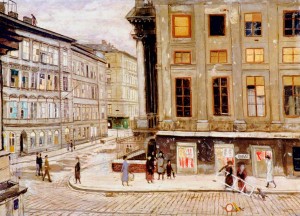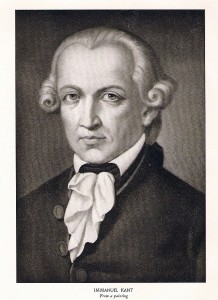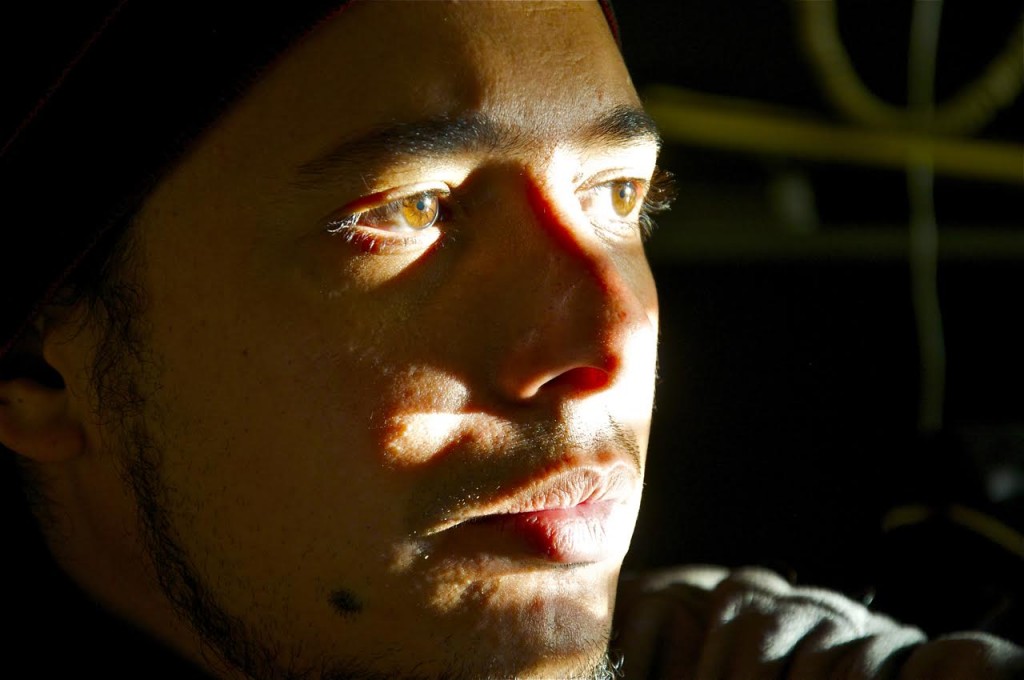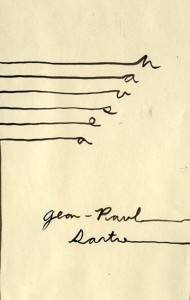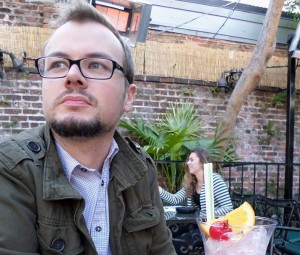
.
As a young man, Francisco Cordoba had but a single living relative: an uncle who made a modest living selling feed and other supplies to local farmers working in the hills above San Gregório. Upon the death of his uncle, Francisco—who had not settled on a profession—left his home in Envigado and moved to San Gregório to take control of the business. When he married, it was here that he took his young bride to live. And it was in the village of San Gregório nine and a half months after the wedding that Claudia gave birth to the first of their ten children, a girl, María Concepción, known to her family as Conchita.
Claudia, who was ten years younger than her husband, had been pampered as a child and was nervous about leaving home. She missed her family and sometimes regretted the choice she had made. But with Conchita to occupy her she quickly forgot her homesickness. Francisco’s business prospered, and like the naïve little fool she was, Claudia allowed visions of comfort and affluence to fill her head. She gave birth to Antonio José less than a year after the first, and now had two babies to keep her busy. Her mother arrived unannounced from Huelva to maintain order within the house, and Claudia was grateful to have help with the cooking and cleaning. But she also wanted to succeed on her own, and once she was back on her feet she sent her mother home.
Life was good. Francisco had men working for him, men he trusted to watch the shop while he was gone. He took Claudia in the bus to Huelva to see her family and show off the children whenever time permitted such an extravagance. After she gave birth to Eléna Serafína they built a bigger house, with room for César Javier when he came along. They were so happy they did not see that trouble was brewing, that within shabby apartments and tiny houses crowding one another on narrow side streets Francisco’s men were struggling to feed their families. They did not know that even in a village the size of San Gregório there were people without homes of any kind who stayed alive by working at menial day jobs and, when these were scarce, begging for food in the open air.
The strike caught them by surprise. It was not a strike against them, or even a local strike, but a general strike that paralyzed the economy and dealt a lethal blow the fragile national currency. Workers everywhere agreed the only way to get a raise in wages was to bring the country to its knees. But their leaders were a dissolute lot who had not bothered to think beyond the day after tomorrow. Francisco offered his men more money and expected them to return to work, but other employers were not inclined to be so humane. There was a standoff.
It was at this moment, with store shelves quickly emptying and people queuing up around the block to withdraw their savings from the bank and the country in a state of turmoil approaching anarchy, that General Allesandro Aguaria-Duarte seized power.
Aguaria declared an end to the strike. Those who defied his orders were arrested and never seen again. The historians depict him as a monster, but his intentions were honourable, at least in the beginning. He tried to restore order and get the economy moving, for he had recited an oath of office and even though the oath was recited behind closed doors with a gun held to the judge’s head, Aguaria took his oath and his office seriously. However, he suffered feelings of inferiority that resulted from his diminutive stature. He was a short man and because of this happiness had always eluded him. He never married. He rode a big horse and wore thick-soled boots, and there was a fat cushion on the chair where he sat behind his desk in the presidential palace. Officially, his personal aide was the only one besides himself who knew of the cushion. But in truth everyone knew. The whole country knew. And he knew the whole country knew.
Aguaria’s mother had been wild and promiscuous and to compensate for her frequent absences his father lavished praise on his only son for any accomplishment, no matter how trivial or meaningless. It was said that for simply getting out of bed in the morning he was rewarded with a dozen gold escudos. Aguaria entered manhood with an ego swelled out of all proportion. His ego was as large as he was small. He took himself very seriously and could not tolerate being the butt of any joke. But because he was small he was sure that everyone everywhere was laughing.
As time went on his dislike of laughter grew into a dangerous and obsessive paranoia. His dreams were filled with the smiling faces and laughter of other people. Amongst the clamour of traffic and the raised voices of street vendors that poured through the windows of the presidential palace, he could always identify with uncanny clarity the ring of a young girl’s laugh. He imagined laughter surging through telephone wires up and down the entire length of the country. He heard the echo of receding laughter whenever he entered the Council Chamber for a meeting and was sure it started up again the moment he left. The burble of water circling the toilet bowl and flowing through pipes sounded to his ears like laughter. His horse, his dog, his parrot: they were all laughing behind his back. When the wife of the man whose office he had seized went on the radio and called Aguaria a “nasty little troll,” he went crazy for real. He made himself president for life and sent his troops into every corner of the country to root out the opposition, which had rallied behind the old president.
In San Gregório Francisco’s men had returned to work and the business was flourishing again, but when the troops arrived everything came to a standstill. The soldiers, operating on orders that were at best vague and at worst contradictory, didn’t know who to arrest first, so they arrested everybody, all at the same time. People fled in every direction. Some managed to get across the mountains and over the border; others were killed or died in the effort. With Francisco in jail and no one to buy the products he sold, the business failed. Claudia, not yet twenty-five and living in a large house with eight children and pregnant with a ninth, had no husband, no source of income, and no food. She began baking. Soon she had taught herself so well that she was able to build up a small regular clientele and support her family on the proceeds. Francisco had been released from jail by the time Aguaria was removed from power, but the business was gone and the only job he could get was in the mines. Before leaving for the mountainous interior, where the men who worked the nickel and zinc mines lived in camps, he sold the house and moved Claudia and their nine children to an old farm, where there was space for the children to run about and an opportunity to grow crops. He also impregnated his young wife for the tenth, and last, time.
.
The Death of Federico Adolfo
Federico Adolfo was born weak, but did not seem more seriously endangered than other infants born at that time and in that place. In a short while he developed a robust cry and a tenacious grip. María Concepción, who was ten, fed and bathed him while Claudia saw to the others. Francisco, taking a break from the mines to help with his new son, was home working in the fields. To be sure it was a tragedy, but at least it happened quickly and, so one would hope, painlessly. Young Federico was crawling about, playing with Sara Violeta and Carlos Vincenzo, who were not much older than him, when he must have come across a stray button from Claudia’s mending. He popped it into his mouth. In a few seconds his eyes were bulging, and this made the other children laugh. When his face turned blue and he began making ugly sputtering noises, one of the children ran for their mother. Foam was coming from his mouth when Claudia took him into her arms, and soon he was not breathing. Terrified and confused by what was happening before her eyes, she called for her husband, but the boy was dead before Francisco reached the house. The doctor who examined the body found the button in the boy’s windpipe, but he said it was nobody’s fault, these things happen. The entire family and many from the community attended the service at the Iglesia de San Gregório and watched the tiny coffin interred in the little sepulchre. Claudia cried for a week, and for months afterward tears hovered at the corners of her eyes. The bitterness of those tears was still on her tongue when Sara Violeta developed the first symptoms of the disease that would claim her life.
.
The Death of Sara Violeta
It started innocently, with the child sleeping a few minutes longer each morning. But nobody thought anything of it, and in fact Claudia was thankful because it meant the precious morning hours were less hectic without the youngest clamouring for attention. Sara had been a demanding baby, colicky and greedy for the nipple. Claudia had only just weaned her when Federico Adolfo was born. But Sara had fussed and fumed all through Federico’s brief life, and now Claudia was thankful her youngest daughter was finally quieting down. With reluctance Francisco had returned to the mining camp at the beginning of November, with the hottest days of summer just around the corner. But even with his income they were still just making ends meet and could not afford to hire anyone to help out. Maybe Claudia was relying too heavily upon María Concepción, who had a delicate constitution and was, if truth be told, not the brightest girl in the world. And that summer proved very hot and dangerously dry. Fires consumed the forests all around them and the sky was so thick with smoke the birds took to bedding down in the middle of the afternoon. With all this going on Claudia was unaware that Sara Violeta was not eating as she should, that she was sleeping more and more each day, and that during her waking hours she exhibited a degree of lethargy that most professional observers would agree was alarming in a child that age. When María Concepción came to her mother one morning and said she could not wake Sara, even then Claudia did not believe there was anything seriously wrong. The girl was tired, maybe had a stomach bug or an ear infection. Claudia entered the room and found Sara in her crib as always, but when she took her into her arms it was like she had lifted a bundle of dry twigs. The girl had lost flesh and weighed almost nothing. With shame she wondered, When was the last time I held her? And what was she to do, with no husband to take charge, no telephone, no vehicle? She sent Antonio José running across the field to Cristián Pérez, their nearest neighbour, who grew alfalfa and maize and who had a truck and would know what steps to take. But the boy was gone for more than two hours, and it turned out that Cristián had just moments before left the house to visit friends. It took his wife that long to find out where he was and get him to come back, pick up Antonio José, and drive the boy home. Cristián, a young man with religious leanings but not much tact, was the first to raise the possibility that Claudia and Francisco had somehow offended God and were being punished. But his comment, though well intentioned, provoked only tears and anger, and he drove Claudia and Sara Violeta into San Gregório to the free clinic without further comment.
It was too late. Claudia stayed by her side but the girl never woke up. She died that same day. The doctor made reference to a wasting disease, showed Claudia some charts, and read a passage from a thick book that was full of big words. It was not her fault, he said. The disease had no known cause, no known cure. Some children—he linked his hands together on his desk and, though he was normally a happy man, assumed his most solemn professional manner—some children choose to die, and once they do this there is no going back.
Claudia returned to the farm alone. She wrote to Francisco and told him there was no reason for him to come home. She would make the arrangements and see Sara Violeta to her final resting place. She wrote to Cristián Pérez and his wife, thanking them for their help. Many came out to pay their respects, but not as many as the first time. For a fortnight after the funeral the house was silent, but Claudia did not cry. She could not. She sat in a chair and with a fear of death in her bones observed her eight remaining children occupied with their innocent amusements and wondered which would be taken from her next.
.
The Death of Carlos Vincenzo
Carlos Vincenzo, now the youngest, had just started school. The bus that picked up all the Cordoba children, along with others from the area, passed along the road in front of the farm every morning. Claudia worried as any mother would, but the driver of the bus was well known to everyone. He did not drink, he had never had an accident, and his own daughter rode on the bus with the other children. Carlos was a patient, gentle child who could sit for hours staring out of the window, watching the birds flitting from tree to tree and the grass waving in the wind. He loved nature and spent his time in a never-ending quest for answers to the questions that were always on his lips. He chased butterflies and collected grasshoppers. He dug worms from the soil and studied them before returning them to their homes. He loved standing in the field on clear nights and watching the stars trace a path across the heavens. After his death there was general agreement that insatiable curiosity had been his downfall. He left with the others in the morning but when the bus brought the children home in the afternoon he was not among them. Claudia held her breath. She would not panic. After all, Carlos Vincenzo was easily distracted and could wander off in search of ladybugs or follow a trail into the woods simply because it was there. He would come home when he got hungry. She questioned the others, and they all insisted he had been on the bus, until Eléna Serafína expressed doubts about this. She had not seen him on the bus, she said. She had only assumed he had been there because everyone said that he was. And when the very last question was answered Claudia understood that Carlos had stood with the group waiting for the bus after school, but had not boarded it. With this, she left María Concepción to cook the supper and hitched the cart to the horse. She followed the road into San Gregório all the way to the schoolhouse, searching for traces of her son. She stood where she believed the bus would have picked them up, looking all around.
It was a time when the country’s farms were producing more food than people could eat. Prosperity was just around the corner, and so, either for sport or out of jealousy, the Gods were sending coyotes and pumas down from the mountains at night to steal sheep and goats from farmers who were not looking for trouble and did not deserve it. Whenever a farmer shot a coyote trying to steal from his herd, he mounted the carcass on a stake and left it as a warning to others. Some farmers had more than a dozen rotting coyote carcasses stinking up their fields. But the pumas were quicker and craftier than the coyotes, and the thefts continued. Both sides suffered losses, but people were afraid that because the farmers seemed to be winning this contest, the Gods would become angry. What would happen, they asked, when the Gods decided enough was enough? All of the thefts had occurred at night and no one dreamed the animals would be so bold as to enter the village during the day. So when Claudia made her discovery, she feared she had found out something that could not be true. For at the edge of the school grounds she found fresh tracks that had been left by the feet of a big cat.
By this time it was late afternoon and the light was fading, but she told the schoolmaster her suspicions and he raised the alarm. The next day all the children in the village stayed home. The farmers joined the local police in the search, and when they found poor Carlos Vincenzo there was nothing left but bones. Claudia recognized his schoolbag, though it was torn and bloodied, and this was the only vestige of her son that was returned to her. The cat was never caught, but Carlos Vincenzo’s death was taken as a warning, and the farmers decided that to appease the Gods they would have to sacrifice one lamb every night to the coyotes and the pumas sent to keep them humble. Each evening, in a rotating schedule, one farmer tethered a newborn to a stake in a field and in the morning buried the remains. Claudia wrote to Francisco and told him to stay where he was, but when he read the letter he was on the next train to Envigado. The sparsely attended funeral had taken place, but he went to the cementerio and stood by the grave of his lost son and wept, for he had harboured a special affection for his little Carlos Vincenzo, his little cientista. When he came home he announced they were selling the farm and moving. He did not let on that he was convinced the place was cursed and that even if it didn’t sell they would have to leave anyway.
It is a common belief that misfortune begets misfortune, and Francisco thought that if they made a clean break with the past they would break the cycle of calamity. Agriculture was booming and the farm was purchased by a business concern that relegated sentiment to the trash heap and entertained no fear of curses or the evil eye. Francisco moved his family into an apartment in a busy section of Envigado. Here, surrounded by the bustle of a modern town that housed thousands of souls conducting their daily affairs, they would be shielded from the spirits that for some reason had singled them out, and safe from the misfortune that had stolen so much life from them. He would get a job and come home every night like other fathers. Claudia could see the children off to school and spend her days free of the worries that wore her down and were making her old before her time. The building was clean and situated close to the school, close to the Iglesia Corazón de María, where they would all go to worship on Sunday morning. What harm could befall them in such surroundings?
Claudia did not like the town of Envigado, which she thought was noisy and dirty and full of unsavoury characters—nothing like her childhood home, the pristine seaside village of Huelva. But she was willing to accept the possibility that Francisco had hit upon a truth that she, in her agitated state of mourning, which had not subsided for three years, had overlooked.
.
The Death of Eva Cristina
Eva Cristina was a placid child who liked nothing better than to play with her two little cloth dolls, one with short hair, one with long hair, which she had named Bella and Lorenzo after the characters in the famous adventure books. She played quietly and by herself in the corner of the room that she shared with her surviving sisters, Ana Luisa, Eléna Serafína, and María Concepción. They were all older than her and watched over her, always asking how she felt, always telling her to be careful going down the stairs and crossing the street, escorting her to and from school as if she were a baby. With a grave expression her mother felt her forehead every morning and at least once a week asked her if she felt any pain when she peed. Even sitting by the window reading a book, “Be careful!” was all she could hear. When she scraped her knee on the sidewalk, her mother fled downstairs in a panic to use the telephone and called a doctor, who smiled oddly at both mother and child as he placed a small bandage on Eva Cristina’s bruised knee, which didn’t even hurt and had stopped bleeding. On one occasion—Oh, the embarrassment!—when her friend Rosalinda Iglesias was passing around figs from her father’s garden, María Concepción snatched it from Eva Cristina’s hand before she could take a bite and threw it into the gutter. Eva Cristina was not supposed to eat anything that did not come from home, her eldest sister scolded her in a loud voice. All the other children were eating figs, but Eva Cristina was not allowed. Days afterward snickers and laughter were still heard all around the schoolyard. She longed to escape from the overbearing kindness of her sisters and did not know why they treated her, and no one else in the family, like a patient in a hospital. Because Eva Cristina had only a dim recollection of her sibling’s deaths and did not understand that in the Cordoba household the obvious was not up for discussion, that behind her back every measure was being taken to avoid another tragedy but that to her face, all was well. There would be no talk of untimely demise, no mention of the mortal peril into which Eva Cristina placed herself every morning when she got out of bed. No. Even Francisco, whose feet were planted firmly on the ground, could not bring himself to tell his youngest that they only wanted her to live a long and happy life.
And so it transpired that over and over again Eva Cristina allowed her thoughts to stray into dangerous territory, and when they returned from these expeditions they brought with them childish notions of infection and disease. She went to the public library and, looking in the medical encyclopaedia, found such horrors as she never knew existed. For she had decided she was sick and that her ailment was of such severity that her death was not only inevitable but imminent. Why would they treat her like she was sick if she were not? It made perfect sense. But because the subject was shrouded in secrecy and veiled in silence, she asked no questions and said nothing to her parents or her sisters about the discovery she had made. She simply went to bed and waited for death to come. Shadows appeared beneath her sky-blue eyes, her hair began falling out, her teeth came loose in her head, her skin, which had glowed with vitality, became sallow and dry. Her joints ached, she lost her appetite. Dreaming that Federico Adolfo, Sara Violeta, and Carlos Vincenzo were waiting for her on the other side, she was comforted and lapsed into a coma. The doctor left the sick room shaking his head, unable to put a name to Eva Cristina’s illness. Claudia responded to this latest crisis with serene acceptance as she applied a cool damp cloth to the child’s forehead. Francisco cursed and wept. She died on a warm Saturday night, during festival. Through the window came the singing and laughter of revellers on the street. The entire family was in the room when the priest applied the holy oil to her lips and palms. Moments later she breathed her last, and once it was over all eyes turned to Pedro Diego.
.
The Death of Pedro Diego
Pedro was neither daunted nor fearful because he had ideas about his future, ideas that included football, marriage to a girl who, like his oldest sister, was named María, and maybe even playing drums or flugelhorn in a mambo band. He had no plans to die young and expressed this intention loudly, boastfully, to anyone who would listen. He had too much to do, the world was large and there was so much in it he had to see. Rather than become morbid, as he might have given that he was next in line to die, Pedro told jokes and seemed determined to drag his family out of the pit of despair into which they had descended. His mother’s long face sent him into fits of exasperation. His father’s drinking made him angry but never sad. He would not submit to the forced care of his older siblings and did what he wanted when he wanted. He played forward on the school football team, joined the school band, and when he had some money took his friend María to the soda shop for malted milks, just like they did in America.
Gradually, influenced by Pedro Diego’s irrepressible good humour, the Cordoba household shrugged off its mourning weeds and one by one its members ventured outside to join the living, to draw the pure mountain air into their lungs, to feel the heat of the sun on their skin. Claudia was able to laugh once more. Francisco limited his drinking to weekends and settled down to his job at the train station, where he managed a maintenance crew. María Concepción ceased her scolding and the other children felt gay and carefree, as children should, for the first time in years. The apartment was filled with light and laughter.
Pedro saw this happen and was proud to have contributed to his family’s recovery. With each success—a smile on his mother’s face, the delighted squeals of his sisters when he teased them about their boyfriends, his father’s booming laugh in response to a joke—he grew bolder and more confident. As different from his unfortunate sister Eva Cristina—who never escaped the echo of death’s heavy tread—as night is to day, Pedro ignored the very existence—the very possibility—of death. He lived as a boy might who had never seen another life end. Some would say he was heedless. The chances he took made it seem so. He was certainly willing to call attention to himself, performing dangerous stunts as if wagging a defiant finger in that dreadful hollow-eyed, hooded face. On a dare he climbed the flagpole behind the school. Once, he laid down on the tracks and refused to move until the roaring of the train was deafening and his friends thought he was dead for sure. Another time, in defiance of both reason and those who said he couldn’t do it, he ate a lit cigarette. Drunk on notions of invincibility and showing off for María, who always attended his games, his play on the football field became swaggering and aggressive. Ignoring the etiquette of the field, not to mention ideals of sportsmanship, he openly taunted the other team’s players when he scored a goal, thrusting his fist into the air and pelting them with insults. For Pedro Diego, nothing was trivial. He lived his days with such intensity that he almost seemed to emit a glow, as if a fire smouldered within his slim body. During the championships he castigated his own team mates for the sloppy play that led to their elimination, mouthing off to anyone who would listen. When Claudia said Pedro, please, it is over; you should think of other things, he did just the opposite. He thought and spoke of nothing else.
And so it came about that word spread through the school that he would teach the two prime offenders a lesson, Luis Gomez and Alonzo Díaz, who had each committed numerous fouls and turnovers. He would take them by the throat, wring their necks, kick the stupid teeth out of their stupid heads. He made these threats to show off to María, not meaning any of it, but speaking so convincingly that Luis and Alonzo became afraid. For protection Luis brought a knife to school, and one day, on the way home, there was an altercation behind an abandoned warehouse. Two against one is never fair, especially when one of the two has a knife, but Luis and Alonzo were not interested in fairness, and when the blade penetrated the tender flesh between Pedro’s ribs and punctured his lung, and his blood had left its stain on the grass of the empty lot, both boys felt that justice had been served. As for Pedro, whose only regret was that he would never have the chance to tell a soul what it was like to die at the peak of his youthful form beneath a blazing afternoon sun, the moment was everything he had longed for.
It was with an air of resignation that the remaining members of the Cordoba family conveyed the body of Pedro Diego back to his final resting place in San Gregório, and saw him interred beside his siblings. Claudia was numbed by the loss and said hardly a word, shed hardly a tear. Soon after the funeral, which was attended only by family members and Pedro’s girlfriend María, Francisco lost his job with the train company and was forced to return to the mines. He was not drinking, but some claimed he had the smell of death on him. As this did nothing to bolster the morale of his companions on the maintenance crew, he was asked to resign. Francisco understood that he was a victim of fear, ignorance, and superstition, but for him it was a relief for the moment to be able to place many miles between himself and Envigado, for the population of the mining camp changed from one season to the next, and he could travel there confident that tales of his family’s agony would not follow him.
.
The Death of Ana Luisa
Claudia kept her eye on Ana Luisa, who was a shy girl, and very bright. She was thin, but also strong and athletic. She was never ill, and this gave her mother hope that she would grow and thrive. In addition, Ana was sober and reflective, possessing an even temperament, given to excess in neither tears nor laughter. Claudia was worried that she would suffer from Pedro’s death more than any of them, for the two had shared a close bond. But when a few months passed and the girl showed no signs of depression, Claudia breathed a sigh of relief and got on with her chores.
Ana hid her passions well. She was going to be an actress or a dancer, and pursued both of these interests at the school, on Monday and Wednesday afternoons, after her regular classes. Her teacher was Mrs. Durany, who had come over from England with her elderly husband, who had since died and left her not as well off as she had hoped. As a result, she was forced to make a living in the only way she knew how, by providing basic instruction in the twin arts of dance and acting to youngsters who might very well grow up to practice one of these professions, but in all likelihood would not. Because she suspected that most of her students were dilettantes, she resented the time she had to spend with them, even though she was paid for her efforts. Her sourness was manifest in the nagging tone of voice and the expressive gestures that accompanied her commands, her favourite of which was an indifferent flick of the wrist as she gave up trying to impart some difficult notion in a language that confounded her. Ana Luisa was perceptive enough to see that her teacher did not relish her duties, but she also wished to make the most of these lessons, which, as she well knew, could come to an end at any time if her mother ran out of money to pay for them. Her desire bordered on desperation, for she also laboured under the impression, false or not, that time was short. This was not something that had ever been expressed in so many words, but the surviving Cordoba children could surely be forgiven for believing their days on this earth were numbered.
More so than her brothers and sisters, Ana Luisa was haunted by the link she saw between passing time and dwindling opportunity. She had spent all her years in the warmth of Pedro Diego’s passion for life. It was she who came closest to understanding his reasons for flirting unabashedly with death. When his flame was snuffed out she vowed to make something of herself or die in the effort. A part of her went beyond simply cherishing the memory of her younger brother to transforming him into a romantic icon, a martyr who had perished for an ideal, and though she was only a girl whose understanding of such matters could never be other than hazy and incomplete, she knew that she loved him and that whatever she managed to accomplish in her lifetime would be to keep his flame alive. It was she, and not the girlfriend María, who, every day for two weeks, until the rain washed the stain away, had placed a bouquet of fresh daisies on the spot where Pedro Diego’s lifeblood had flowed into the ground. It was she who kept one of Pedro Diego’s shirts, grotty with his sweat, folded beneath her pillow. It was to Pedro Diego, and not the Lord Jesus, that Ana Luisa directed her prayers at night and in the morning. But she was also wise enough to know that even if she tried to explain it, nobody would understand how a normal girl could harbour an obsessive longing bordering on lust for a younger brother who was dead, and so kept her passion a secret. Ana Luisa, outwardly as calm, patient, and reasonable a girl as you could ever hope to meet, was on the inside seething with thwarted desire and conflicting emotions. When Mrs. Durany threw up her hands for the last time and, finally packing in the lessons, boarded the first steamer bound for her native England, and her mother told Ana Luisa that it was just as well because there was no money to continue the lessons anyway, she realized that her great hopes had been dashed. Assuming the cool demeanour with which she had deceived her entire family in the months following her brother’s death, she took Pedro Diego’s shirt into the front room and cut it into strips with a pair of scissors. When Claudia asked what she was up to she smiled and said she was going to make a quilt. Then she took the strips into the bathroom, tied them together into a noose, and hung herself from the hook on the back of the door.
The news of his daughter’s death reached Francisco long after the fact, because Claudia had delayed telling him and then bad weather had brought down the camp’s supply plane. Two months after Ana Luisa had been laid to rest in the cementerio at San Gregório (because Claudia had convincingly argued that it was not suicide but “despondency” that had killed her daughter), a salvage team found the plane, buried the pilot, and brought the cargo, including the mail, back to the camp. Though the mines have long since closed, the story still circulates among those who heard it from those who were there, about the man who received bad news from his family. Hours after he had collapsed on the floor of his hut, a crumpled piece of paper in his hand, his inconsolable wails were still being heard for miles in all directions—echoing through mountain passes, reaching into valleys and across the high plains, frightening the animals, and sending the innocent goatherd to his knees with a prayer on his lips.
Francisco did not return to Envigado but instead asked for longer shifts. During this difficult time he performed his labours, ate his food, smoked his cigarettes, in the mechanical and submissive manner of a doomed man waiting for the next blow to fall.
.
The Death of César Javier
Of all her children, César Javier was the most aloof, the most enigmatic and difficult for Claudia to understand. When he spoke, everyone listened because it happened so rarely, but the words issued laboriously from his mouth and his observations, mostly of a mundane nature, touching upon the weather or events at school or the exploits of friends, did not reveal anything of his soul. Unlike Pedro Diego, he was not interested in sports or girls. His eyes were heavy lidded and there was no gleam in them. She did not like to think of him as dull, but he was indifferent to the flesh accumulating around his middle, his grades were poor, and the way he chewed his food reminded her of a cow. He collected comic books, and whenever Claudia went tidying in the room shared by her two remaining sons, she pulled the box containing the comic collection out from under the bed in the hope that his reading habits would convey to her something of his essence. But she was disappointed. Action heroes with names like The Flash, Superman, and Hulk did not speak to her of anything meaningful. Their eyes were empty, which she took to mean their souls were empty as well.
At thirteen César Javier seemed to have no ambition and few interests, and when his teacher told her that her son was not suited for school and study, and that he should be apprenticed out to a trade, she did not argue. The boy did not oppose this decision either, and as if he were capable of a response such as relief or gratitude, Claudia interpreted the grunt he emitted when she shared with him the news that he would not be returning to school as an indication that her efforts on his behalf were appreciated.
One of her neighbours in the apartment building was Támar Rodriguez. He worked for the tram company, and when Claudia explained the situation, Támar was only too willing to help. He would personally oversee the boy’s apprenticeship and ensure that when the time came, a position of some sort would be made available. Támar Rodriguez did not make this offer out of the goodness of his heart. He had been an admirer of the attractive young mother Claudia Cordoba for many months, casting a furtive eye over her slim black-clad body whenever he happened upon her. Because he was no longer a young buck and not yet a lascivious middle-aged boor, he had only admired from afar and not made any overtures, which instinct told him would be unwelcome. His contact with her had been therefore limited to infrequent but cordial greetings in the stairwell or in the hallway. He was naturally shy, and normally he would keep his distance until he had made inquiries to determine her situation. But as she had approached him, and he saw no evidence of a husband, the opportunity to ingratiate himself with a young woman by performing a service that would cost him nothing by way of money or inconvenience seemed too good to pass up. He would make his move only when he judged by the light in her eyes that the time was right.
Claudia had no intention of being unfaithful to Francisco, and if someone had caused her glance to linger upon Támar Rodriguez with the suggestion that this man wanted to seduce her with kindness she would have laughed out loud had she not been in mourning. As it was, she had no suspicion of his designs upon her and did not feel compelled to explain where her husband was. She simply believed that César Javier’s need for a trade had to fill a corresponding need somewhere in the town, that by the merest chance someone close by worked for the tram service, and that she should make it her business to consult him about the possibility of her son receiving training and, eventually, employment. Támar was very tall and pale like a cadaver, and he manoeuvred his attenuated limbs in the stiffly awkward manner of a man wearing stilts. His small eyes were recessed so deeply in his head that the skin encircling them seemed bruised, and he had a little moustache that he stroked unconsciously, but in a most repellent manner, whenever he spoke to a woman he found attractive. Claudia recoiled at the sight of him, and it was only out of politeness that she met his gaze and responded to his greeting whenever they encountered one another in the hallway. She did not want to, but because her only goal was to secure a future for her slow-witted son, she would consort with Támar Rodriguez in order to accomplish this, and she would not complain about it.
César Javier remained an innocent bystander as agreements were made on his behalf and arrangements put into place for his benefit. It did not occur to him to question anyone or anything, and when the Monday morning arrived on which, instead of going to school with María Concepción, Antonio José, and Eléna Serafína, his mother gave him his lunch in a paper bag and turned him over to their neighbour Señor Rodriguez, he accepted it as both natural and inevitable.
Támar Rodriguez did not himself work on the trams. He performed duties related to scheduling and payroll in a small office building, and it was here that he intended the boy would serve his apprenticeship. He had been so delighted to find himself the object of Claudia’s attention that he agreed to act on her request without giving much thought to the tasks that would have to be carried out. As the day approached when Claudia Cordoba’s son would accompany him to work, he began to entertain a fantasy about the boy. He envisioned a young man with a flare for numbers who was both funny and interesting, who would become not only his assistant on the job, but also his eyes and ears within the Cordoba home. Ensconced together at the office, they would have leisure to discuss all manner of things. Through the son, Támar would come to know the mother with great intimacy, and when César Javier returned home each evening he would sing the praises of his mentor so lavishly that soon, like a love song, the mere mention of his name would be enough to melt Claudia Cordoba’s heart. And so on that first, and, as it turned out, last morning, many doubts and grave misgivings flooded into his brain while he briefly endured César Javier’s limp handshake and met two expressionless eyes staring at him from out of a doughy face. Instantly he regretted not having taken the trouble to previously make the boy’s acquaintance and neglecting to even ask about his interests and capabilities. By the time they reached the office building, Támar Rodriguez had decided that if César Javier was the price, then he was prepared to completely forgo Claudia’s affections, for he did not think he could tolerate this boy’s slack-jawed company for a single morning let alone for the months it would take to successfully complete an apprenticeship in payroll.
Once they were in the building, Támar went to the reception desk and made a phone call. He had heard of an opening in the mailroom, and he told the mailroom supervisor, Julian Nuñez, that he had brought someone to help out. Julian, a thin ingenuous young man in blue overalls, emerged from his basement refuge, and the instant his hand touched César Javier’s in greeting, Támar Rodriguez considered his commitment to both Claudia and the boy at an end. Whistling a carefree tune, he took the two flights of stairs up to his office at a brisk sprint.
Willing to attribute his unfavourable first impression of the boy to nervousness, Julian asked César Javier to follow him down to the basement. But after a couple of questions, to which César Javier responded either with perplexed silence or his signature grunt, Julian realized what he had been saddled with. From the mailroom he phoned payroll services to tell Rodriguez that his joke was not funny, but was informed that Támar had called in sick and might not be in for the rest of the week. He hung up and allowed his disappointed gaze to drift across the room to César Javier, who sat where he had been told to sit, staring gape-mouthed at the single light bulb suspended from the ceiling, holding on his lap the paper bag containing his lunch. Plainly, since there was a good chance he could not read, he was an unlikely candidate for sorting mail. And since he was abnormally heavy for his age and had almost tripped going down the stairs, he was probably unsuited to pushing a trolley from office to office delivering mail. Could he find anything for this boy to do in the mailroom? Julian thought not. He phoned custodial services and told them that their new employee had wandered into the mailroom by mistake. In response to the question, What new employee? Julian made a sound that was unintelligible and yet had the unmistakable ring of infuriated authority to it. Presently, a buxom woman with grey hair tied in a bun and wearing a green uniform appeared and, much to Julian’s relief, escorted César Javier away.
Through all of this, and through all that followed, César Javier behaved in the compliant manner that had enabled him to reach the age of thirteen with a full belly and relatively few scars. He smiled and did what he was told and accepted everything that appeared before his eyes as the inexorable result of what had come before. He had never liked school and so was happy to be taken somewhere else, but this new environment—in which many people who were strangers to him were asking the same questions and leading him back and forth from one place to another—made little sense. By mid-morning he found himself seated in a dark basement room cloudy with cigarette smoke surrounded by a group of people, young and old, all wearing identical green uniforms. This was the staff room for the custodial crew. The epithets they were directing toward him—imbecile, moron, fat boy, pigface—were all familiar and therefore no cause for alarm. There was, however, something vaguely sinister in the laughter, which was general and uproarious, and in the manner in which some of them thrust grinning, gap-toothed, contemptuous faces before him while emitting hoots and donkey brays and sounds that perhaps a monkey might make. Of course, César Javier had no way of knowing that hiring standards in custodial services were very low, and that many of those taunting him had been victims of bullying and prejudice all their lives and, having been forced to put up with it, were all too willing to dish it out. He might have found a home for himself here were it not for his trusting disposition and utter lack of malice, which set him apart and made him a natural victim. The limits of his endurance had never been tested as they were tested on this day, but he sat and smiled for an hour, perhaps two, clutching the bag containing his lunch, waiting for the onslaught to end. He remained calm and did not experience any fear—that is, until one of the men took the belt from around his waist and another kicked the chair out from beneath him.
In his second-floor office, Támar Rodriguez was suffering twinges of guilt and feeling that perhaps he had been too hasty in his dismissal of Claudia Cordoba’s son. How onerous would it be, after all, to put up with the silent maniquí occupying the corner of the office, even for a month or two? Trying to teach the boy the subtleties of double-entry bookkeeping would be a wasted exercise, but surely he was not totally impervious to learning. During slack times he could tutor him in the ABCs, perhaps teach him a dirty poem or two. And if the prize awaiting him was Claudia Cordoba’s trust and, eventually, affection, then maybe it would be worth troubling himself to that extent.
He had picked up the phone, intending to call young Nuñez in the mailroom and ask him to have César Javier sent up to his office when his attention was drawn by a commotion on the street, which his office overlooked. To his shock, surprise, and dismay, there was César Javier himself, his face bruised and bloodied, his trousers down around his ankles, cradling the paper bag with his lunch in it as if it were an object of tender reverence. The boy had obviously suffered a bad fright and somehow injured himself. He was looking up and down the street, taking one step this way, stopping, taking a step that way. People passing by gazed at him in wonder and then sidestepped him, as if they suspected he was mad or dangerous. Seeing the expression of terror on the boy’s face, Támar understood how selfish and ill-advised his decision had been, to abandon him to a pack of unsympathetic strangers, and, wishing to redress what he now saw as an act of disloyalty, flung open the window and called down to the street, “César Javier wait! I will come down! Wait for me!”
It was too late. Hearing a voice calling his name from somewhere up in the sky, César Javier’s terror was multiplied. No one will ever know what lunatic notion sent him on a wild dash into the busy street, where he was knocked down and crushed by a truck delivering furniture. Támar Rodriguez turned quickly away and covered his eyes. However, the sounds—the impact of metal against flesh and bone, the squeal of tires, the screams of people running to and from the accident scene—were not so easy to escape. Somehow he got word to Claudia, who arrived just as the debris was being cleared away and her son’s lifeless body was being loaded into the back of an ambulance. Támar spoke to her just long enough to explain that he had let the boy out of his sight for only a minute and had no idea how this could have happened. He wanted to wrap her in his arms and draw her to him, but the cool formality with which she received his excuses kept him at a polite distance. He could see that attempts to console her would be pointless and that he could forget about ever winning her affections. He fled back to his office, where he shut the door and instructed his secretary to hold his calls for the rest of the day.
But Támar had been wrong. Claudia was not angry. She spoke to no one else and after a few moments of brooding contemplation drifted away from where her son’s blood stained the cobbled street, clutching to her chest all that remained of her inscrutable but beloved César Javier: one of his shoes and the bag containing his lunch—two cheese and tomato calzones, still in perfect condition.
The death of César Javier marked the end of a dismal chapter in the history of the Cordoba family. Francisco returned home from the mines, and with the money he had saved from working hundreds of extra shifts was able to purchase a small farming property in the hills outside of Envigado, on the San Gregório road nearby the little hill village of Lasanía. As quickly as could be arranged, he moved his wife and three precious children out of the town that he had thought would be a haven for them and tried to put this latest misfortune behind him.
.
The Death of Eléna Serafína
Eléna Serafína, as her name suggests, had an angelic disposition, but she was also beautiful. She had a small upturned nose, inky black hair that fell straight to her slim waist, small delicate feet, and, at only fifteen, breasts that had grown to the size and firmness of ripe grapefruit. Claudia had difficulty both purchasing and making clothes to fit her comfortably and that also retained a degree of modesty. Fearful that Eléna’s extraordinary beauty would ignite the passion of every boy in the province—for you had only to take one look at the girl to fall in love with her—Claudia tried dressing her in a loose-fitting bodice covered with an old-fashion blouse, in a plain baggy skirt, in overalls, in a dumpy cotton dress that reached to her ankles and covered every inch of her. But the shining beacon of Eléna Serafína’s beauty was not to be dimmed, even when buried under multiple layers of unflattering attire. She cut the girl’s hair into a disorderly mop, but it grew back straighter and more exquisite than ever. She told her daughter that it was sinful to enhance her beauty with lipsticks and blushers, which were finding their way on to the grounds of even the most rigidly protective Catholic schools, but Eléna Serafína did not need help from artificial cosmetics in order to be declared the most beautiful girl for miles around.
Because it had been necessary for Francisco to return to the mines, Claudia wore herself out trying to protect her daughter, staying up late into the night, listening and watching for suitors who might try to creep through the window into the girl’s bedroom, chasing off the packs of young men who gathered like hungry wolves on the road leading to the farm, weeding the love letters out of the day’s mail and throwing them unread on the fire. At school Eléna Serafína was shielded from unwelcome advances by her older sister and, at Claudia’s request, by her teachers. But with Eléna Serafína growing more womanly by the day, Claudia, in despair, realized that nothing short of consigning her to a cell in the monasterio católico hidden deep in the hills would keep her daughter safe from harm. Though she would argue until the last breath had left her body that it was not true, she had, unconsciously perhaps, already resigned herself to a loss that was foreordained.
A boy named Ramón Casimiro finally bypassed all the precautions and safeguards and insinuated his way into Eléna Serafína’s heart, and, shortly thereafter, her britches. The incident happened in an empty field near the school, just beyond the Lasanía precincts. Like many others smitten by her unrivalled beauty, Ramón had been observing Eléna Serafína ever since she arrived at the school, hoping to catch her eye and, in not too subtle a fashion, communicate his intentions. Eléna, indifferent to her looks, which she regarded as nothing special, was not a flirtatious girl, and if left to her own devices would have been perfectly capable of spurning the advances of boys and young men who did not interest her. However, camouflaged beneath the dowdy outfits provided by her mother and shielded from reality by her sister and the teachers at the school, who were anxious to avoid scandal, she had retained far too much childish innocence for a girl of fifteen and had not even the vaguest inkling of the impious thoughts that her body inspired in the male of the species. She did not care that her hair, her skin, and her breasts were perfect. She did not care that boys ogled and whistled at her. However, Ramón Casimiro caught her attention because he was a few inches taller than the others, his shoulders were broader, and his biceps were just that much more developed. He was also smart, in a nefarious, conniving sort of way, and after observing how her sister María Concepción and the teachers fussed over her to no end, had determined that a direct approach with this girl would get him nowhere. He would have to plan a sidelong attack, and with this in mind elicited the services of one of Eléna’s closest friends, a squat and graceless girl named Carola Gómez, whom he charmed and corrupted with a promise of sexual escapades once she had helped him to seduce Eléna Serafína.
For Eléna Serafína her beauty was truly her downfall, for not only did it inflame the lust of every man she encountered—from the elderly gentleman whose nether regions had been asleep for decades to the boy just entering puberty—it stirred to life envy in the hearts of girls and women who believed themselves above envy, including those whom she counted among her friends. Carola Gómez, as empty headed and selfish as only those can be who fail to perceive beneath the surface of things, was blind to all but the physical beauty of her friend and of the boy she wanted desperately to be with. That the price for gaining the one was losing the other did not trouble her, and she agreed to convey Ramón’s notes to Eléna Serafína the same moment the request was made.
What began tentatively soon became a passionate exchange of lover’s vows. Carola Gómez was kept very busy as go-between and sometimes wondered if the erotic high jinx that Ramón had pledged would be sufficient recompense for her efforts. She was also disappointed that Ramón’s affection for her friend seemed to be sincere. When he had solicited her aid he had made it sound as if he regarded the whole episode as a lark. But now, reading his notes to Eléna Serafína before passing them on, she always wept because the words were full of poetry and the most profound understanding of sentiments that all women long to have whispered in their ear. She went down on her knees at her bedside and prayed that when he had had his way with Eléna Serafína, whom she had grown to hate, he would write such things to her. What she was too ignorant to realize was that Ramón, coming from a sophisticated household, had consulted his father’s library, where he discovered The Collected Works of William Shakespeare in translation and was cribbing liberally from The Sonnets and Romeo and Juliet. Eléna’s notes in response professing gratitude for Ramón’s courtesies, though passionate in a restrained, and ultimately childish, way, were far less forthcoming, and after the first two or three Carola did not bother to read these before placing them under the stone in the schoolyard, where Ramón came by later to retrieve them.
There is no getting around the fact that Eléna Serafína was all too easily duped by Ramón’s borrowed eloquence, and she soon agreed to a clandestine meeting, away from meddling influences and beyond the range of prying eyes.
The sexual history of our race is filled with stories of young women losing their virginity in untimely fashion to unprincipled young men. Eléna Serafína had fallen under a spell, and with her imperfect understanding of her own sexual potency, allowed—some would say invited—the worst to happen. Her friend Carola provided the pretext, agreeing to tell María Concepción that she and Eléna were going to her house to do their homework together, while in actual fact Ramón was waiting for the object of his desire in a field beyond the village. Carola led her friend, like the proverbial lamb to slaughter, along the road that took them out of the village, chattering all the way about how intelligent and handsome Ramón Casimiro was, and advising Eléna to be nice to him. Because the boys were segregated from the girls at school, Eléna Serafína had never been alone with any boy other than her brothers. In the field she took his hand and smiled. Ramón smiled as well and, placing his other hand on her cheek, gasped at the divine softness of her skin. Eléna looked over her shoulder to ask Carola what she should do next, but her friend was gone. This was not part of the arrangement, and her heart began to tremble. But Ramón quieted her fears, gently stroking her while saying that Carola would be back in a few minutes and in the meantime they might as well lie down in the grass and get comfortable.
To his credit, he was not rough with her, but in his eagerness to be persuasive tore several buttons from her dress, which was one her mother had pieced together from an old tablecloth and finished with a drawstring that had come from a sack of potatoes. Once he had her clothes off, he could hardly contain himself. Her beauty was far greater than he had imagined, even in his most zealous adolescent fantasies. All in all, for Ramón, though he achieved climax much more quickly than he would have hoped, it was a pleasing and gratifying experience, worth all the dishonest scheming in which he had engaged, even worth the embarrassment of having to ally himself with that odious little Carola Gómez, whom he had no intention of ever touching let alone taking to bed. When he was done he stood and, tossing her clothes toward her, curtly instructed Eléna Serafína to cover herself. Then, valorous to the end, he left the naked, weeping girl where she lay in order to go home, where his mother would be preparing his supper.
Claudia sensed a change had taken place, and within a week had determined that her daughter was carrying a child. The girl, innocent to a fault and utterly incapable of telling a lie, readily confessed what had taken place. Her naïveté was so complete that she was unsure if she should be proud or ashamed. Claudia knew of the family of this boy. The father was powerful in the unions and the mother, with her rich woman’s airs, had all of the teachers at the school eating out of her hand. There was nothing to be gained from making claims and hurling accusations, so she decided to keep Eléna Serafína at home until the baby was born.
And so the months went by. María Concepción, bitter with the knowledge that her mistake was costing her family so dearly on this occasion, lost the ability to smile, and at the sight of her stern elder sister Eléna Serafína, whose condition had made her excitable, invariably broke down into tears. Antonio José, encountering Ramón Casimiro on the street in Envigado one evening, gave the boy a black eye and would have done worse had his friends not been there to restrain him. Claudia wrote to Francisco that all was well, but her heart was heavy with foreboding because a child cannot develop normally in the womb within an atmosphere made poisonous by rancour and spite. She tried to lighten the mood in the household by baking sweet cakes and keeping all the windows uncovered, and by telling stories that she thought her children would find amusing, but often discovered she was eating the cakes alone and speaking only to herself. María Concepción’s scowls, Eléna Serafína’s tears, and Antonio José’s anger sapped her strength, and she had just taken to her bed when, halfway through the ninth month, Eléna appeared at her side saying that the moment had come.
The timing could not have been worse. Though Claudia was confident she could deliver a baby herself, when she saw it was a breech she decided that Antonio José would take the cart and go into town to fetch the doctor. However, the rains that had started the previous day continued unabated, and Antonio José did not get very far before discovering the road was impassable. When he returned home alone Claudia began to weep, for she knew that she could not deliver this baby without help. María Concepción assembled the necessary implements and provided plenty of hot water while her mother made Eléna Serafína comfortable, but when the baby had been delivered up to his neck, Claudia’s worst fear was realized. He was stuck and would come no further. Without delay, she would have to cut Eléna in order to make the passage easier. Placing a damp towel in the new mother’s mouth in order to stifle her screams, she ordered Antonio and María to hold Eléna still while she performed this delicate and risky manoeuvre. The incision she made with a kitchen knife was small but produced so much blood she could not see what she was doing. Finally the baby came free, but it would not breathe and Claudia’s efforts to revive it proved futile. This left them with the task of saving Eléna Serafína, who was bleeding to death before their eyes. They tried damp towels and bandages, even cauterization, but nothing would staunch the flow of blood. In an automatic gesture, the delirious Eléna had taken her two siblings by the hand and maintained a grip of unnatural strength. It was almost as if she thought they might pull her to safety. But as the seconds ticked by and the blood continued to flow, her grip slackened, and it was not long before the girl’s struggle ended. Soon the only sound to be heard was the rain drumming on the roof of the house.
Claudia had the baby with no name interred with his mother. Nobody dared voice an objection. The Cordoba family’s frequent visits to the cementerio of San Gregório had, in the most unfortunate way, earned them the right to dictate how things would be done. Even the new young priest was not above looking to Claudia and Francisco for advice on how best to conduct una misa por los difuntos.
.
The Death of Antonio José
This was in the days of compulsory military service, and at seventeen Antonio José had reached the age when he could expect to receive the call. He awaited his conscription notice with anxiety, but also eagerly, torn as he was at the thought of leaving a home that had seen more than its share of tragedy but which was also familiar and dear to him. When the letter arrived, three days after his birthday, he was disappointed to learn that he was being assigned to a camp far to the north, deep in the desert interior. His friends had been telling him stories of others who had performed their service in towns on the coast, where during their leave they consorted with the local girls and visited the beaches and casinos that attracted cruise ships carrying American tourists who were always on the lookout for ways to part with their money. In his mind, Antonio José had constructed a vision of himself in a starched white uniform, a beautiful girl on each arm, raking in stacks of chips at the roulette table. He understood that the reality was probably less glamorous than his fantasy, but like most boys his age he also was not fully aware of the kind of humiliating, boot-licking grunt work that basic training actually entails.
By age seventeen Antonio José felt cast adrift in a dangerous, hostile world with no idea why he was there. The deaths of eight siblings had burned eight holes in his young heart and left it permanently scarred. His only means of shielding himself from more pain was to keep all people at a distance and hold himself aloof from serious emotional attachments. To this end he cultivated a callous and defiant public persona, pretending to care about nothing and no one, even though he cared deeply about everything and everyone.
After the death of Eléna Serafína, he pulled away from his mother and sister, and with menacing silences and accusing glances made them think he held them responsible. At home he quarrelled with María Concepción, bringing tears to her eyes by calling her a bitch and even una buscona—a whore—even though he had no basis for such allegations and did not himself believe she was anything other than a gentle young woman whose heart, shattered by grief, could never be mended. For her part, she told him he was behaving like a fool, causing them all to suffer needlessly when they had already suffered enough. To forget his sister’s pain, he went into town with his friends on weekends and caused trouble, getting into fights, breaking windows, defacing public property. But try as he might, he could not lose sight of the immense divide that existed between his true caring self and the delinquent identity he was working hard to adopt. Unaided, he would never become genuinely heartless and convincingly project the image of a sullen, disrespectful teenager. He needed help. And the instrument he chose to help him in his quest was alcohol.
Antonio José had seen his father falling-down drunk more than once, and it was true that Francisco had a weakness for drink. He could easily have destroyed himself in this way. But he demonstrated true strength of character by moderating his intake and exhausting himself through hard work. He had escaped back to the mines shortly after Eléna Serafína’s funeral, but when Claudia wrote to him about Antonio José he returned home determined to rein in the boy’s wayward tendencies and set him on the right track.
It was customary for boys to be initiated into the ways of men at an early age, and Antonio José had enjoyed a glass of red wine with dinner when he was only fifteen. Claudia had permitted this and Antonio José never drank more than a single glass and never exhibited a thirst for more. His habitual drunkenness at sixteen therefore came as a great surprise, and he was a surly, argumentative drunk. Francisco’s presence in the house did nothing to inhibit his craving and, if anything, made it worse since he was unable to avoid the disappointment in his father’s eyes. Prohibitions were put in place, but by Saturday night Antonio José had always managed to lay his hands on money that his older friends could use to buy a bottle of wine for him. However, despite the heartache he was causing, Claudia did not want her last remaining son to enter the military without fanfare. They held a celebration for his birthday, with presents, cakes, and wine, and Antonio José was allowed to get staggeringly, roaringly intoxicated. At midnight Francisco, Claudia, and María Concepción carried him to bed and tried not to listen while Antonio José, out of his mind and raving, scoffed at them for the misery they endured, for their regrets, for their constant state of mourning. He said he was going to be free. He would change his name and make a life for himself somewhere else, away from the pernicious influence of the Cordobas of Envigado province. He remembered none of this in the morning, but on a subconscious level some vestige of this sentiment must have stuck. As the day neared for him to leave home, he grew pensive and less cantankerous. A few weeks after his conscription notice, a subsequent letter had arrived with a schedule and instructions he was to follow upon his arrival in the northern military outpost of Puño. He had gone into town to purchase the train ticket and told everyone he was leaving Wednesday morning. Over several days, while Claudia prepared pastries and other tidbits he could enjoy on the trip, he packed his belongings. However, on Tuesday morning while it was still dark he got out of bed, took his filled duffel bag, some scraps of food, his shaving kit, and a few other important items, and quickly left the house. The train pulled out of the station at five a.m., heading north. He said goodbye to nobody.
Antonio José’s train did not go all the way to Puño. It made its final stop in Arica, where he was to board a military transport bus that would take him inland to his destination. Arica was a port town, located in a beautiful coastal region blessed with a dry warm climate that attracted thousands of native and foreign holiday goers to its glistening beaches. The schedule told him that he had a few hours of leisure before he was to report to the local Cuartel General, where the bus would be waiting. He was tired after his trip, which had taken more than forty-eight hours, and had slept only fitfully. But the sight of Arica, brilliant in the morning sunlight, with its winding cobbled lanes, resort hotels, coconut trees, and brightly painted buildings inspired him with a sense of adventurous longing. He had never been anywhere like this, and was instantly filled with resentment that his family should have held him back, as if this had been done deliberately, in full knowledge of the pleasures of which he was being deprived. Moreover, the follow-up correspondence he had received had long since dispelled the fanciful notions that had earlier filled his head. He was therefore not convinced that the military was where he belonged and regarded the two years of service awaiting him with suspicion and fear.
He carried his duffel bag with him into a café and took a table by the window. Instantly, as if by magic, a little man with grey hair and an unruly moustache appeared and with a damp cloth wiped down the table. With an inviting smile he asked Antonio José what his pleasure would be. Antonio José ordered a cup of coffee. However, he had already received two cheques from the state, one as an advance on his military salary and another intended to cover his transportation costs. He had cashed these and had therefore a substantial wad of pesetas stuffed into his jacket pocket. At this decisive moment his thoughts travelled upon two distinct paths through his mind: one which saw him spending the next two years in Puño, which was reputed to be a barren, desolate encampment where he would be living in uncomfortably close quarters in a tent with a mob of sweaty new recruits, performing menial labour from dawn to dusk, eating tasteless gruel, and pissing behind a cactus, and another which summoned him to live his life to the fullest, to experience all he could in the short time allotted to him. He called the man back to his table and ordered breakfast and, purely out of curiosity since he had never tasted it before, a whisky.
Of course, Antonio José did not understand that, genetically speaking, he had the makings of a true alcoholic and that the first drop of fiery amber liquid to hit bottom in his stomach would ignite a thirst that would not be quenched until he had consumed the entire bottle. His father had beaten back the demon only by sheer will power, but Antonio José was far from the sobering influence of his family. Having arrived in the cosmopolitan resort town of Arica feeling cheated by fate and in the mood to be more than a little reckless, with his pocket bulging with pesetas and two years of state sanctioned imprisonment on the horizon, he didn’t stand a chance.
The little man in the café was no innocent bystander. The duffel bag and the wad of cash branded Antonio José as a new recruit, away from home for the first time, and the little man knew that the military was willing to pick up the tab for whatever mayhem these inexperienced, vulnerable young men created. He also knew, though officially it was unacknowledged, that every season the military expected a small number of new recruits to go completely off the rails, to lose all their belongings, all of their money, their dignity, sometimes the clothes off their back, sometimes their freedom, and sometimes their lives. The little man had seen it happen on a number of unfortunate occasions. But who was he to go against fate? In fact, a widespread belief existed among the tavern owners, barkeepers, casino operators, pimps, drug dealers, bootleggers, and purveyors of pornography who did business in Arica, that this was the way in which the military weeded the weaklings and derelicts and perverts out of its ranks before they found their way in. Popular opinion held that these businessmen and -women were in fact performing a vital service for their country. By providing a source of temptation that only the most grossly substandard of its citizens would be unable to resist, they were saving their armed forces hundreds of thousands of pesetas in tribunal and court marshal costs that would otherwise be spent after the fact when these inferior young men showed their true colours. The little man in the café therefore believed that, though technically it was against the law to serve hard liquor to a teenager, and especially unethical to do it before eleven o’clock in the morning, he was bound by a sense of duty and national pride to fill the order. This was how Antonio José Cordoba found himself lifting a glass of the finest American whisky to his lips before he had been off the train for twenty minutes.
The first sip filled him with a warm feeling of kinship for all humanity and a supreme sense of self-confidence, and he quickly drained the glass. He drank his coffee as well, but suddenly the food he had ordered seemed repulsive, and without tasting a single bite of breakfast, he paid his bill and left the café in search of an open bar or taberna, where he could do some serious drinking.
Lined up side by side along the road that faced the beach was a tempting array of establishments suitable to the boy’s purpose. He selected one and went inside. Here, in a smoky interior made intimate by subdued lighting, the middle-aged woman behind the bar, who felt upon her broad shoulders the same weighty responsibility for her country’s welfare as the little man at the café, filled glass after glass according to the instructions of her young patron. When Antonio José could no longer hold himself upright on his stool, she assisted him into a back room and laid him down on a cot, where he instantly began to snore. She also rifled his pockets and helped herself to the money he owed her, along with a sizable tip. She forgot about the duffel bag, which sat abandoned on the floor of the taberna for a short while before another patron, who had been keeping an eye on these proceedings, walked off with it. Antonio José awoke an hour or so later aware of only one thing: he was going to die if he did not immediately have a drink. He did not know where he was, but in the muddle that his brain had become, this did not register as a concern. When the same woman refused to serve him—because she now recognized him for what he was: someone who would happily drink beyond his means if given the opportunity—he raised a stink and was forcibly ejected.
Outside, he wandered along the boardwalk beneath the afternoon sun feeling himself hard done by and craving that deep affection for all humanity and the supreme sense of self-confidence that had warmed him earlier. Without these the world was intolerable and all the people in it seemed deceitful and small-minded. Finally, in a side street close to the port, nestled between a boating supply store and a muffler repair shop, he found a drinking establishment that would serve him. He sat down and pulled the much diminished wad of cash out of his pocket and laid it on the counter.
Events become sketchy at this point, but the one thing that is certain is that Antonio José did not survive the night. He was found by the morning’s first light face down in the shallows near a wharf where amateur anglers went to collect bait and cast their reels. The back of his head bore the imprint of a mortal blow, but the autopsy, carried out under the watchful eye of a military coroner, showed that he had in fact drowned before he could die from the effects of his wound. The body was shipped home, with the costs graciously borne by the state, and delivered to his family, who had spent several frantic days trying to establish his whereabouts after his surreptitious early morning departure only the week before.
Francisco was now in demand at the mines and had been promised a good salary and credit toward a pension for the years of service he had already put in. After Antonio José’s funeral, and before leaving once again for a work term of indeterminate length, he sold the house that had seen the death of one child and delivered another to an ignominious fate at the hands of strangers, and relocated his wife and daughter to the farm where he intended that he and Claudia would live out their final years. This was also on the San Gregório road, but much further away from Envigado, in view of the mountains and situated in virtual isolation on the plains between the highest hills.
.
The Death of María Concepción
María Concepción wanted to make her mother happy. This, she felt, would be her mission in life. However, because she had lost the ability to smile, and because she was by nature dour and judgmental, humourless and quick to tears, she faced great impediments to her aim of re-inventing herself as a carefree, amiable presence within the home. She did not really enjoy housework and had no intellectual ambitions, though she had been a competent enough student and always received the praises of her teachers. She was also thin and gangly, with shapeless legs and almost undetectable breasts, and she wore her frizzy reddish-brown hair long and tied back from her narrow face. She had suffered the pangs of loss every bit as sharply as her parents, for she had been a mature ten-year-old when little Federico Adolfo had choked on a button, and her memories of her other siblings lives and deaths were fresh and never far from the active centre of her mind. She was, in short, a living repository for all the sad events that had taken place in her family’s history, and she became blushingly conscious of this every time her mother’s gaze lighted on her and then seemed, as if in response to a reflexive aversion, to shift quickly away.
Claudia was at a loss to understand her behaviour toward her daughter, whom she loved more than her own life. After a few months spent alone with her in the farmhouse, the girl’s grim presence was causing her the kind of physical discomfort with which anyone who has attended the sickbed of a dying loved one will be familiar. They did not argue, but the girl had a way of looking at her that seemed to peel the layers away and leave her exposed. Claudia stopped seeking her out and, in fact, began plotting ways to avoid her. When by necessity they must be together, she suffered her presence as she might an offensive odour or a nest of spiders that could not easily be got rid of. The meals they shared were particularly trying. María Concepción seemed to feel obliged to maintain a flow of conversation no matter what effort it cost her, all of it meant to avoid discussion of the one topic weighing most heavily upon both their minds and none of it anything that Claudia wished to hear. Claudia was always glad on those occasions when she could truthfully declare she was unwell and would take her supper alone in her room.
On Sundays they hitched the horse to the cart and side by side rode to church in San Gregório, where they endured the uneasy salutations of their fellow parishioners, every one of whom knew the family’s tragic history and none of whom were able to make their attempts to appear untroubled by the presence of the Cordoba women in the least convincing. On Saturdays they loaded the cart with the goods they had prepared for market and made the long journey together into Envigado. These simple activities should have given Claudia great pleasure, a pleasure one could reasonably assume would be heightened by the simple fact that she was sharing them with her daughter. But, inexplicably, Claudia derived no satisfaction from anything she did when María Concepción was at her side and found the girl’s austere company and forced chitchat a source of great anxiety. She did not wish her ill, but looked forward to the time when she would be free of her.
At nineteen, Claudia had reason to hope that María Concepción would, after attracting a suitor and getting married, soon be leaving home. She was, though unsmiling, not without her physical charms. Men sometimes approached her outside the church after mass, and others tried to beguile her with suave glances and bravura displays of eloquence at the market. But because she was timid and could not smile, none of these advances met with much success, and, seeing that the girl showed little interest in anything other than clinging to her mother with unseemly devotion, Claudia decided to begin laying the groundwork for an eventuality that, if God had any grace at all, could not be far in the future. She began talking with exaggerated enthusiasm about other women she knew whose daughters had married well and who were now raising families of their own. Into the awkward silences that were strewn like stones throughout their conversations she dropped the names of young men whom she regarded as suitable matches. As if the girl had ever expressed such a desire, she sighed and said she would have no objection if María Concepción still wanted to move into San Gregório and get a job as a schoolteacher. And finally, and in a regrettable moment of vexation brought on by the girl’s apathy toward everything but her mother’s needs, she reminded María Concepción that when she was nineteen, she was married and had already given birth to two children, a fact of which her daughter, having been one of those children, was painfully aware.
María Concepción could only see that her mother was roughly cutting off her attempts to form a meaningful bond with her, and it dawned on her one day over breakfast, while she watched Claudia tentatively slice into a hard boiled egg, that her mother was afraid, afraid in the same manner that a person fears an incident or experience that will cause her pain. Claudia might be blind to it, but her daughter—once she had analyzed the pattern of recent behaviour and understood her mother’s dread—realized in a blinding flash that when Claudia looked at her she did not see a healthy young woman who had every reason to go on living. She saw someone who had not yet died but whose time was fast approaching. This neither shocked nor alarmed her, but it did enable her to understand why her mother was always pushing her away.
With only these and similar notions to keep her company for hours at a time, the girl began to speculate further. There must be about her, María Concepción thought, a negative aura, a toxic cloud or vapour that, though invisible, influenced people and events around her in a harmful way. She looked back over the years, recalling her siblings, each one in succession, and thought about her role in their deaths. And for each she found a reason to believe that, had she said something at an appropriate juncture or behaved in a slightly different manner at a crucial moment, that child would still be alive. It was enough that she thought her mother was struck with terror at the sight of her, but in a short time she had also convinced herself that her mother would somehow achieve contentment if she were gone. From here it was a short leap to the conclusion that her mother wished she would die. And from here, it was logical to assume that she deserved to die.
The girl continued to live her life and perform her chores, but once she had allowed these ideas to permeate her consciousness she became less of a flesh and blood entity and more an ethereal, vaporous presence. She spent hours out of doors, in the full glare of the summer sun, tending to the rose bushes with which she had formed an unlikely attachment. As time went on and the roses flourished, saturating the air around the house with their perfume, her skin acquired a milky translucence and her body became even more willowy and fragile than before. She drifted about the house in complete silence, shocking her mother with sudden and unexpected appearances at her side, floating from room to room and, like a shadow, leaving not a trace of herself behind, only the faintly perfumed scent of rose petals. Claudia did not see her eat a morsel, did not hear her speak a word for days at a time. She tried to rouse herself to alarm, but found she had not the heart for it. It was like the child had died along with the others and was already beyond her reach.
And then there came the day when María Concepción failed to appear at breakfast. Claudia forced herself to go looking. The house was silent, but outside there was a breeze and already the birds were filling the rose-scented air with their song. She crept along the passage to the girl’s bedroom. Within her heart fear mingled with hope to create something she neither recognized nor understood. When she thrust back the door without knocking she was shocked to find the room filled with light. Through the wide open windows the rose bushes reached numerous tendrils forward like groping fingers. María Concepción lay on her bed with her hands clasped over her breast holding a single pink rose. Her skin was pure chalk white and her abundant red hair was spread around her on the bedclothes in luxuriant shining splendour, concealing the pillow on which her head rested. Her eyes were closed as if in sleep, but her slightly parted lips had curled into a smile at the thought that now, after years of suffering, her mother would be happy.
§
Many years later news of the death of General Allesandro Aguaria-Duarte filtered down to the common man by way of gossip and innuendo. First it was the nurse who had pressed her ear to his mouth and heard his deathbed confession, then the priest who had been called in at the last moment to perform the rite of Extreme Unction. Then one of the General’s bodyguards, who had long been living abroad, went on American radio and spoke about the General in the past tense. Finally there was such a clamour in the street that the state-controlled media had no choice but to report the death as a fact. The President hung his head and declared it was true, adding that the reason it had been kept secret was concern for public safety: the fear that in the midst of their celebrations people would behave badly and cause themselves and each other harm. But in truth, the President feared that because the economy was not as robust at this point in his term as he had promised it would be, people would look back on Aguaria’s administration with nostalgic longing and, forgetting the insane and random brutality that had been his trademark, turn the late General into a saint and his grave in the Cementerio Parque el Prado into a shrine.
Claudia, when she finally heard the news of Aguaria’s death nearly a year after the fact, made no connection with her own life. She had to think for a long while to bring an image to mind, and when she did, she saw a little man with a big moustache wearing military garb riding a grey stallion. Then she thought no more about it.
But she thought often and deeply about her children, who had visited this world far too briefly and passed into the next as if lured by some enticement impossible to resist. Fifty years after the death of her last she could still be seen making her weekly trek to the cementerio of San Gregório, where she swept off the graves of her offspring with a wicker broom, paused over each to mutter a prayer, and then trudged home along the dusty San Gregório road. As the years went by she often spoke of these visits and the things her children had done with the lives they had never lived. Federico Adolfo was a famous poet and had read to her from his latest project, a series of dramatic poems depicting the great military victories from the country’s long history. Carlos Vincenzo had become a college professor and visited the Galapagos Islands, where he studied the climate and the marine environment. The creatures he described seemed so outlandish and unearthly that she could hardly believe her ears. Ana Luisa had become a dancer. People all over the world paid money to see her perform. Antonio José was a soldier, César Javier a tram conductor. The others had all become parents and gave her the news of what their own children were up to. To hear these stories never failed to lift her spirit because for a mother, there is nothing more richly satisfying than to listen to her children describe their accomplishments.
When she understood that the last year of her life had arrived she brought each a special gift, and if anyone had been brave enough to commit the blasphemy of opening the paper bags in which the gifts were delivered, they would have found:
For little Federico Adolfo: the button that had unfairly claimed his life, which the doctor had presented to the young mother after conducting his examination. Claudia had kept it all these years, intending she knew not what, but the time had come to return it. She had often taken it from its hiding place to examine it, a plain black button from a pair of Francisco’s trousers. It had gone missing, and so distracted had she been by the squalling of her children she had not given it a second thought. Until it was too late.
For Sara Violeta, who had been so irritable and greedy for her feedings: the rubber nipple off the baby bottle she had used once the child had been weaned. The bottle had long since been broken, but if it had not been she would have brought that too.
For Carlos Vincenzo: the school bag that had been found in the forest close by his remains, still stained with his blood. She had never washed it. It was empty and she had always been curious to know who had taken his books and pencils.
For Eva Cristina, who had perished most mysteriously under the influence of a pernicious but unknown contagion: the two little cloth dolls, Bella and Lorenzo, with which the girl had been able to amuse herself for hours at a time.
For Pedro Diego, her little daredevil, the boy who would not stop laughing: a photograph of his friend María, the girl who had won his young heart and who, standing next to the family, had wept long and hard at his funeral. Claudia had discovered the photo in his school bag among his belongings after he had been laid to rest. It bore teeth marks along its edges and this strange fact had always brought a smile to her lips.
Ballet slippers seemed an appropriate parting gift for Ana Luisa, who had dreamed such noble and ambitious dreams but who fell victim to the despair of failure much too early.
Poor César Javier. Something had prevented him from eating his lunch on the day he had died, but he had carried it with him until that truck had ended his life. For him she brought two fresh cheese and tomato calzones to appease his hunger.
What else could she have brought for Eléna Serafína, the only one of her girls to bear a child of her own? Few mementos remained, but the one that stood out was the oversized brassiere she had had specially made to contain the girl’s enormous breasts.
For Antonio José: the object of his single-minded craving and the instrument of his ruin, a bottle of red wine.
For her beloved María Concepción: a little basket filled with rose petals.
§
Francisco retained a deeper recollection of Aguaria’s tenure as president. He had often cursed the General under his breath, especially when bearing one of his children to an early grave. But when news of the little man’s death reached him one hot dusty day when he was enjoying a cigarillo and a drink of homemade aguardiente at a sidewalk café in San Gregorio, he waved his hand in front of his face as if chasing off a fly. “The damage has been done,” he said to his old friend Egberto, who had likewise suffered under the tyrant’s rule. The faces of his ten dead children passed before Francisco’s eyes as the two old friends raised their glasses. To dispel the memory Francisco looked upward, into the piercing afternoon sun, and briefly considered the anguish that human beings are capable of enduring. By silent and mutual consent, he and Egberto toasted General Allesandro Aguaria-Duarte, the little man whose vanity was the object of an entire country’s derision. It had caused mayhem far and wide, led to the demise or disappearance of thousands, robbed families of their offspring, ruined the nation’s reputation on the international stage, and brought close friends to blows. “The waste,” Egberto commented, shaking his head. “Imagine the waste.” Francisco nodded, knowing, after all, more about waste than anyone could ever imagine.
They turned back to their game of backgammon. It was Francisco’s move.
—Ian Colford
.
Remarkably, more than 30 years after his first story was published, Ian Colford keeps finding things to write about. He gets most of his ideas from overheard conversations and from just keep his eyes open, but when the pickings are slim he makes things up. Often, an idea will simmer for a year or two before the writing starts, with the final product bearing little resemblance to the original concept. “How the Laughter of the Nation …” was originally included in the draft manuscript of his novel The Crimes of Hector Tomas (2012) but was cut during the editorial process. He is grateful to Numéro Cinq for giving this story its web debut. A novella, Perfect World, is forthcoming from Freehand Books in 2016. At present he is working on a sequence of stories using characters that appeared in his 2008 story collection, Evidence. He works as a librarian at the Sexton Design & Technology Library at Dalhousie University.
.
.
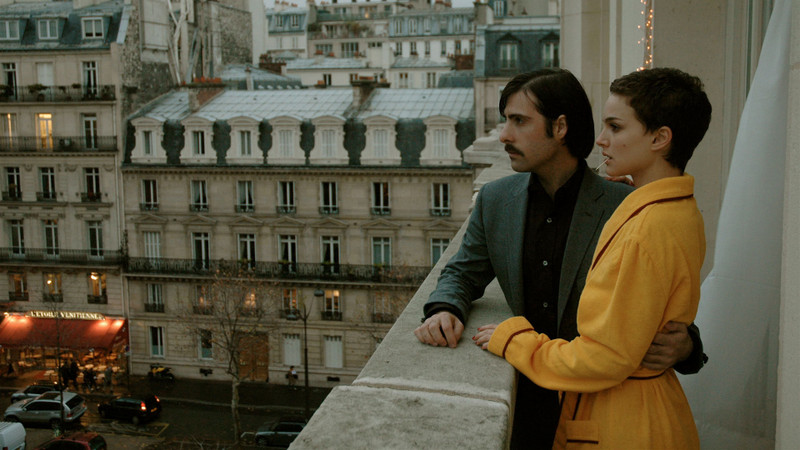






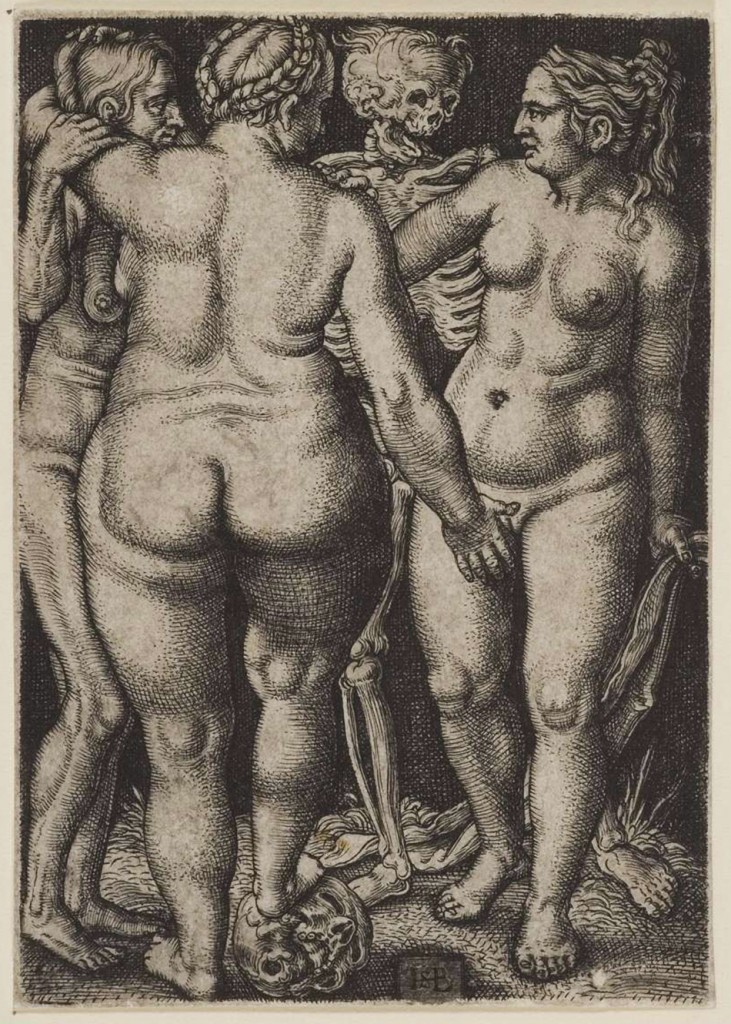
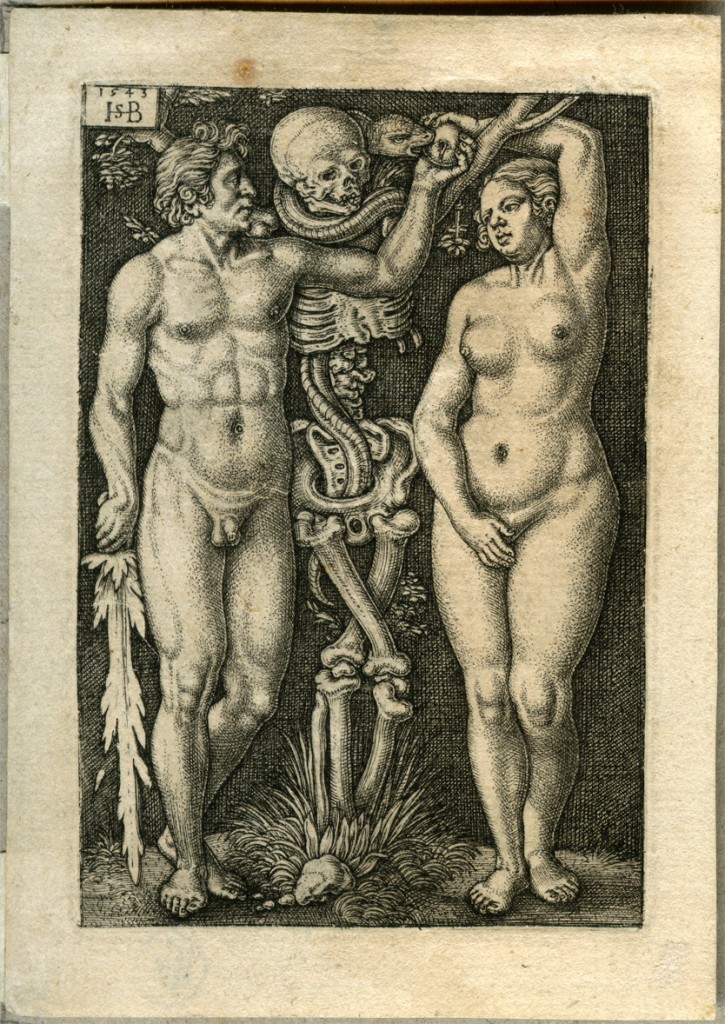
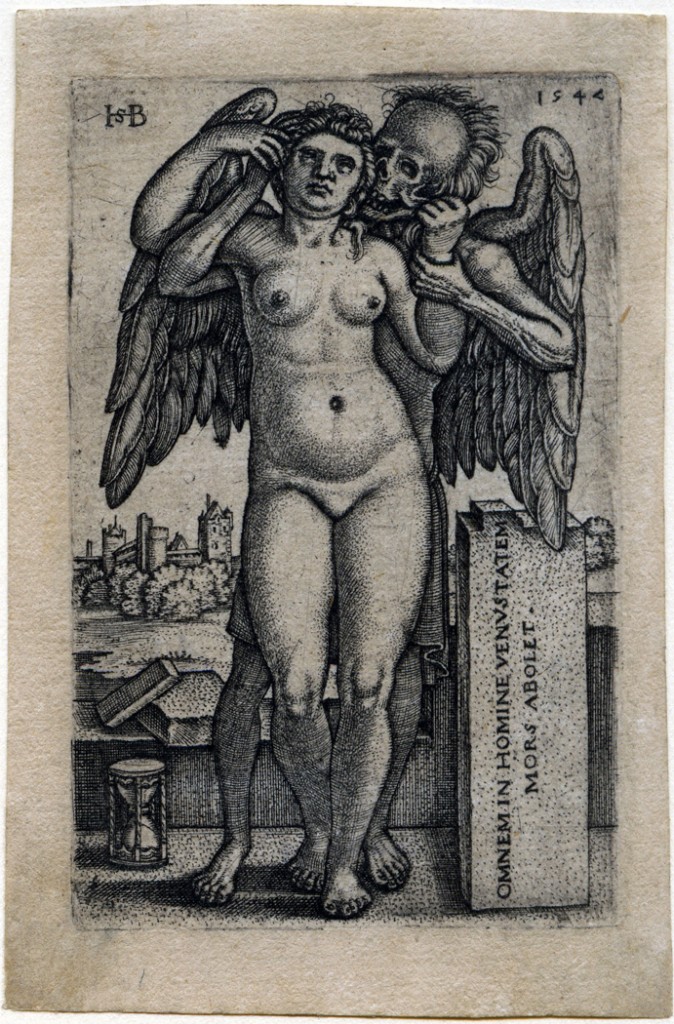
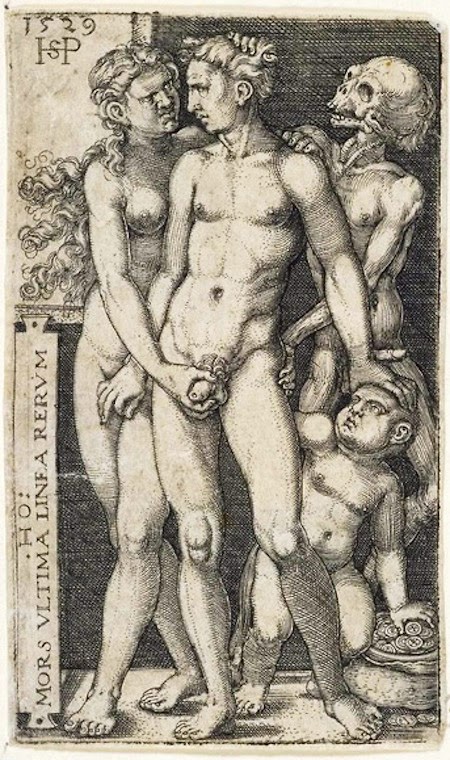
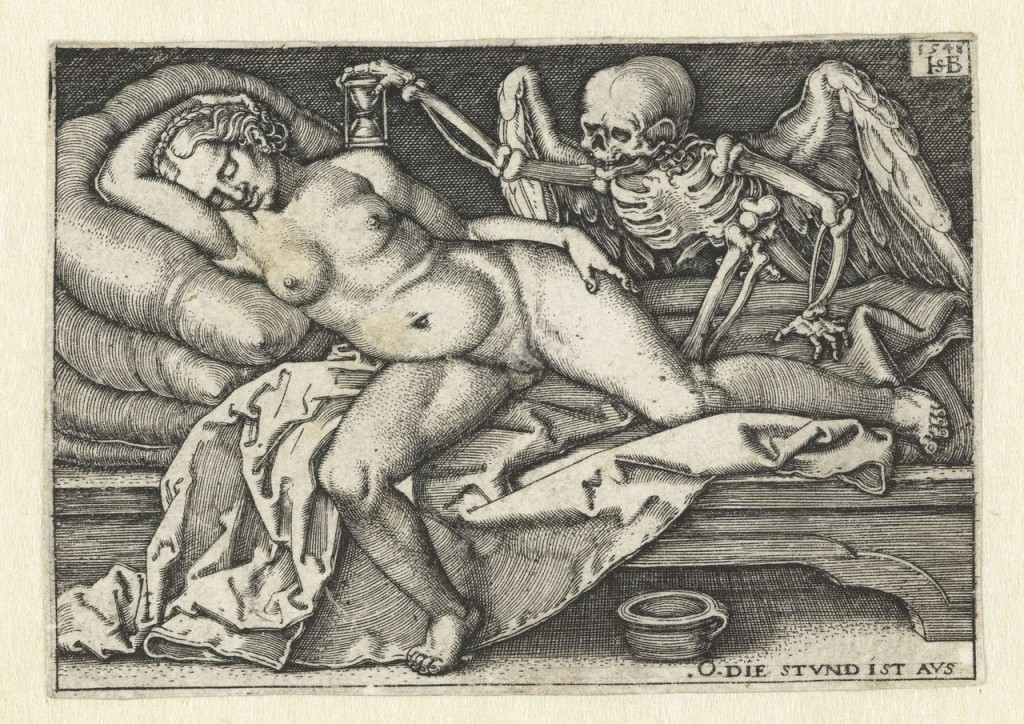
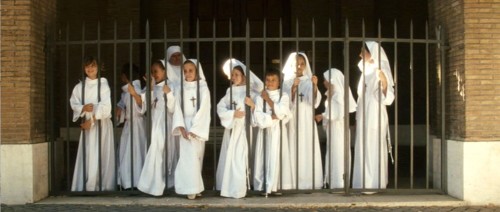
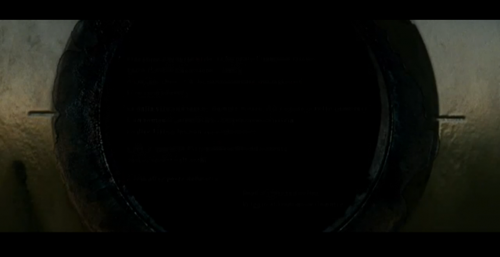


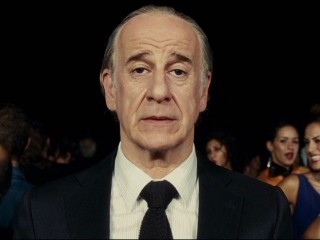
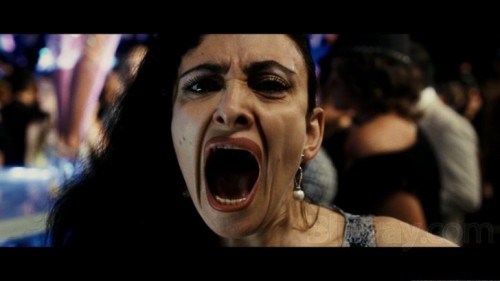
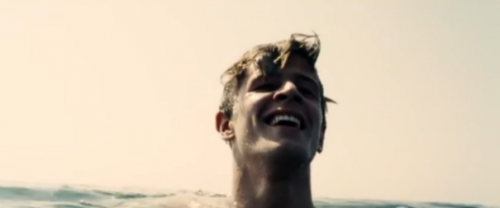





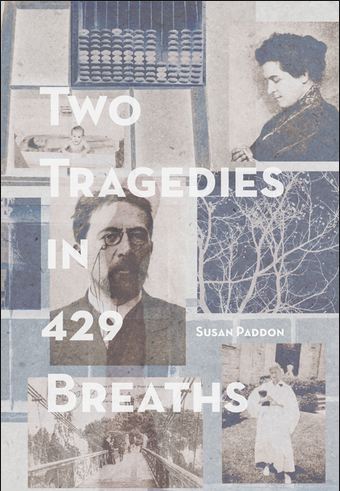
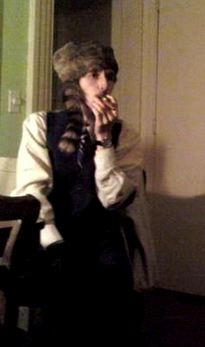
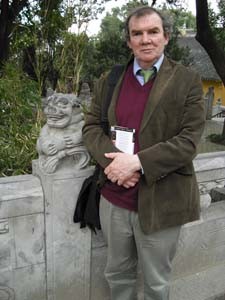



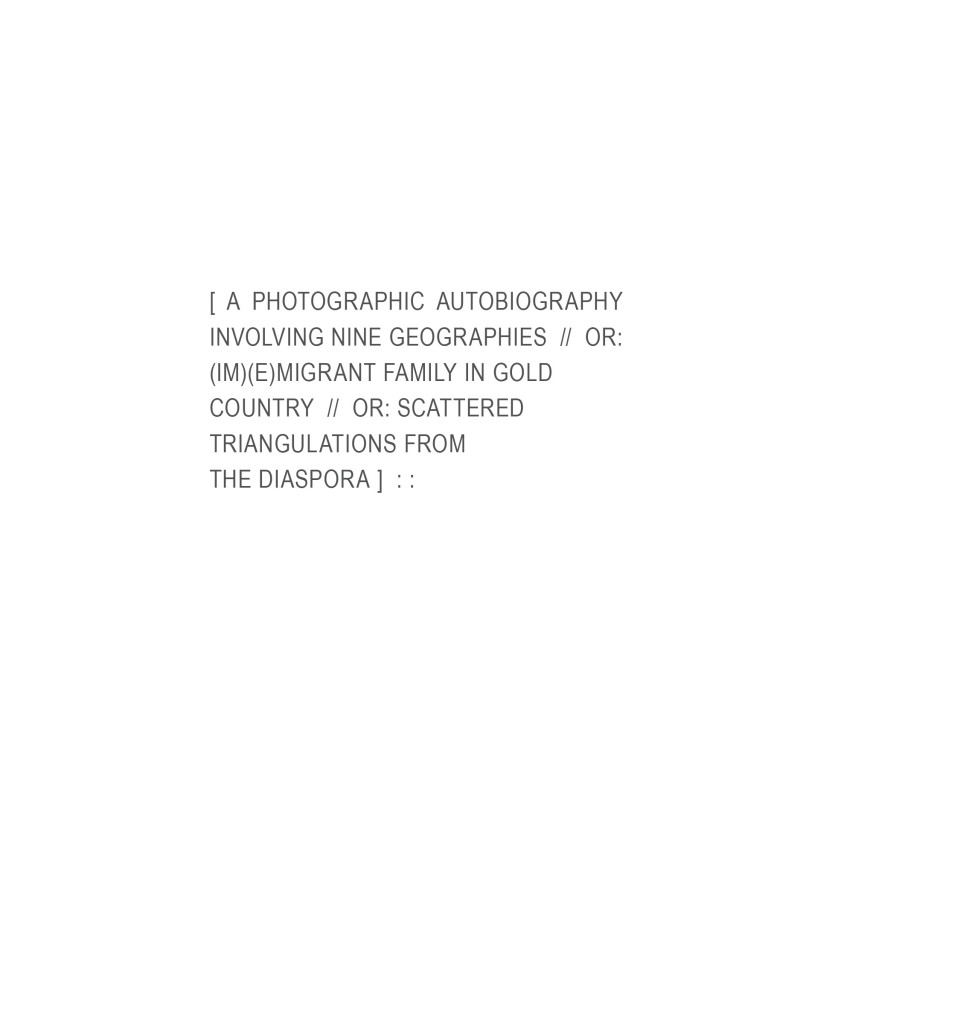
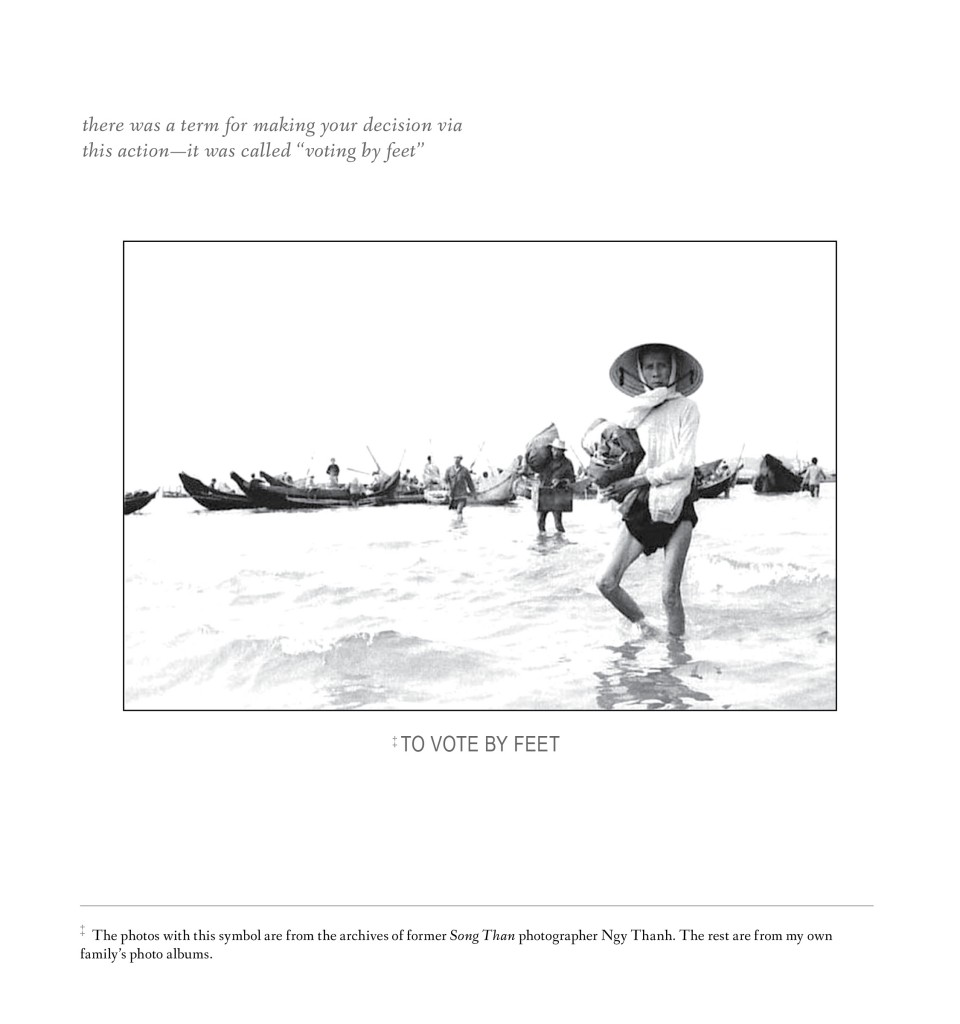

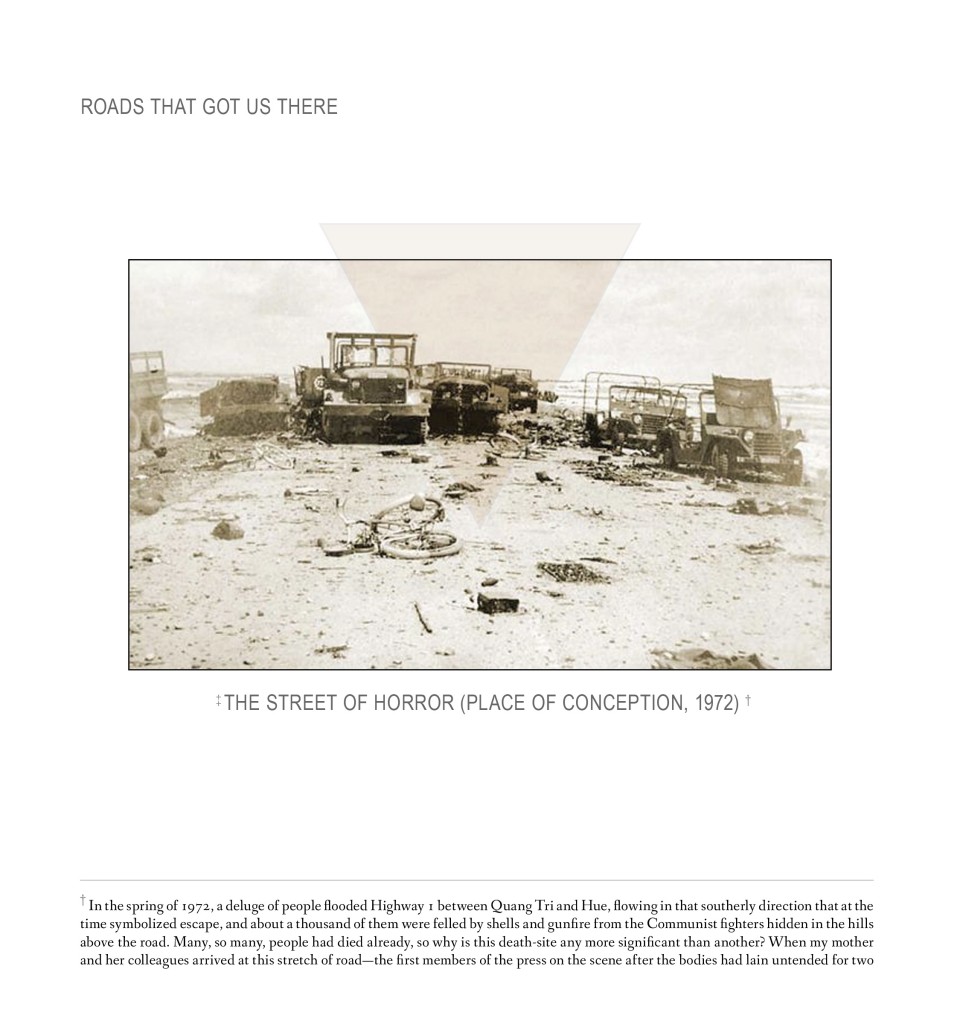

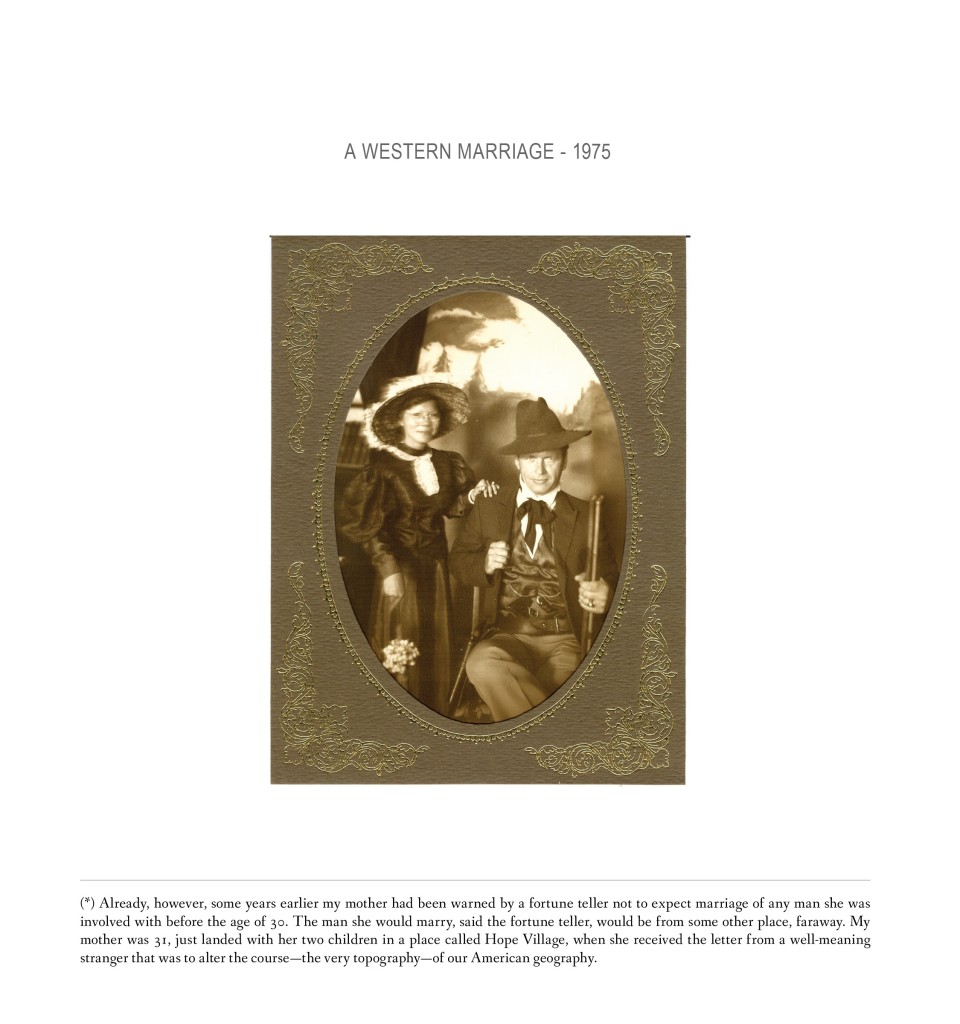
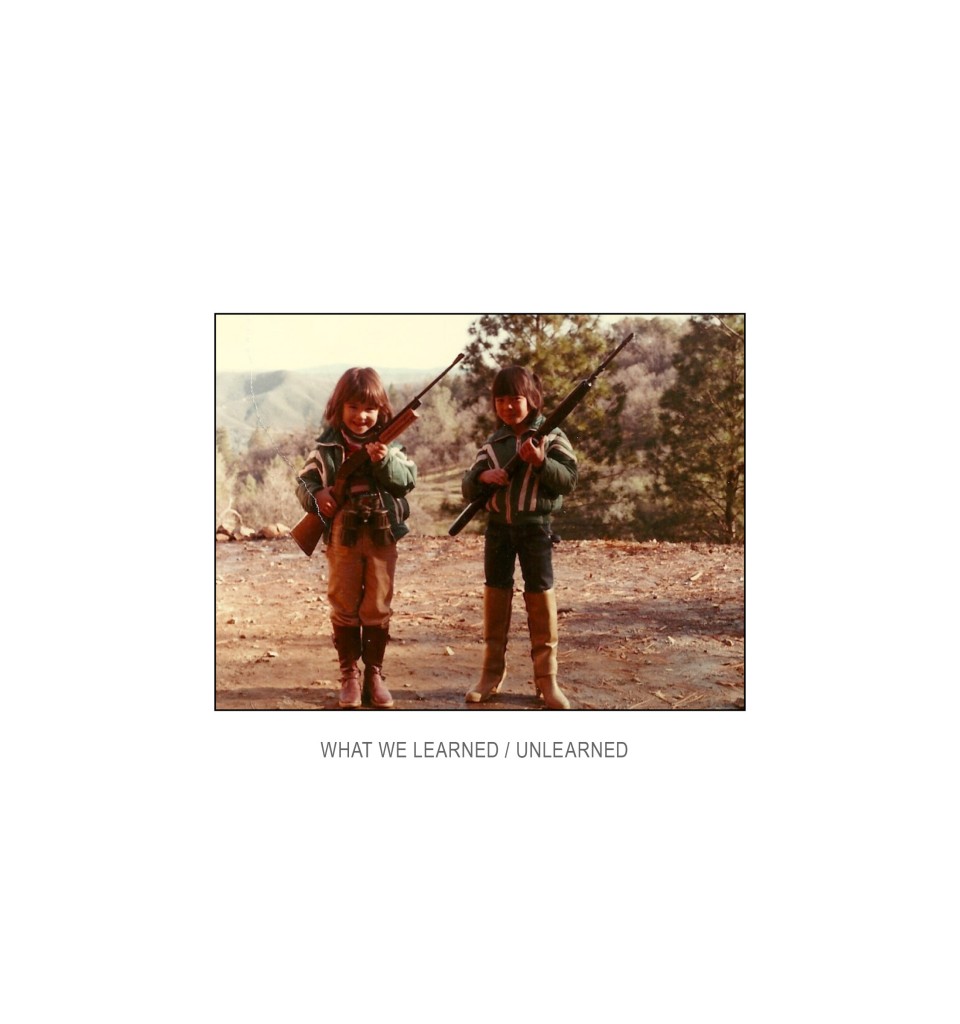

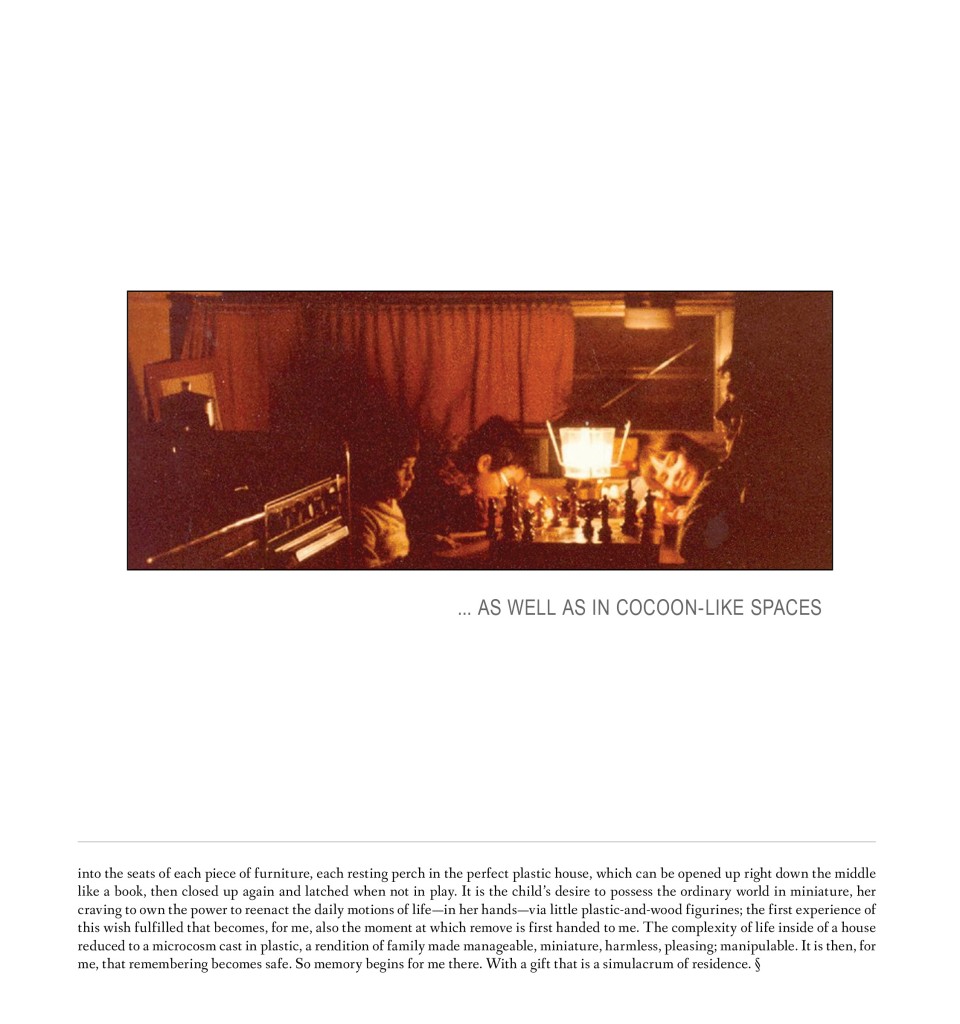
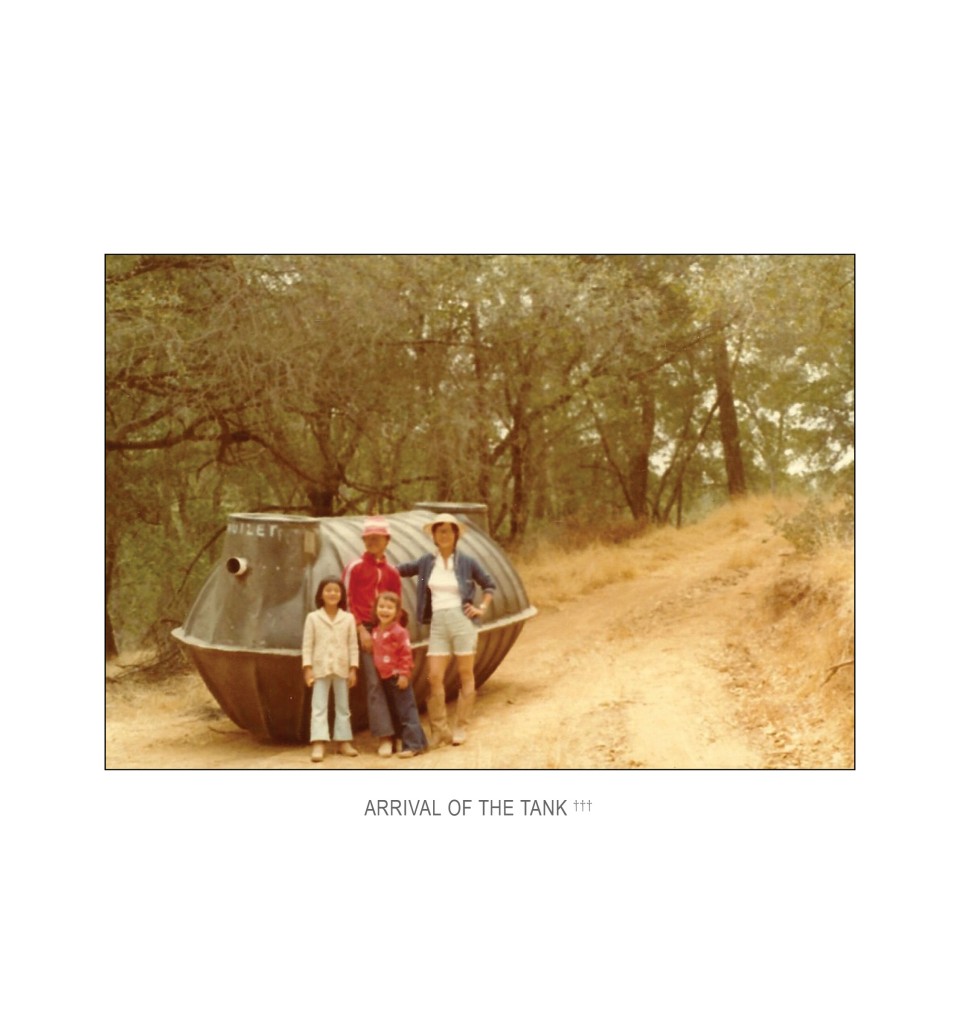
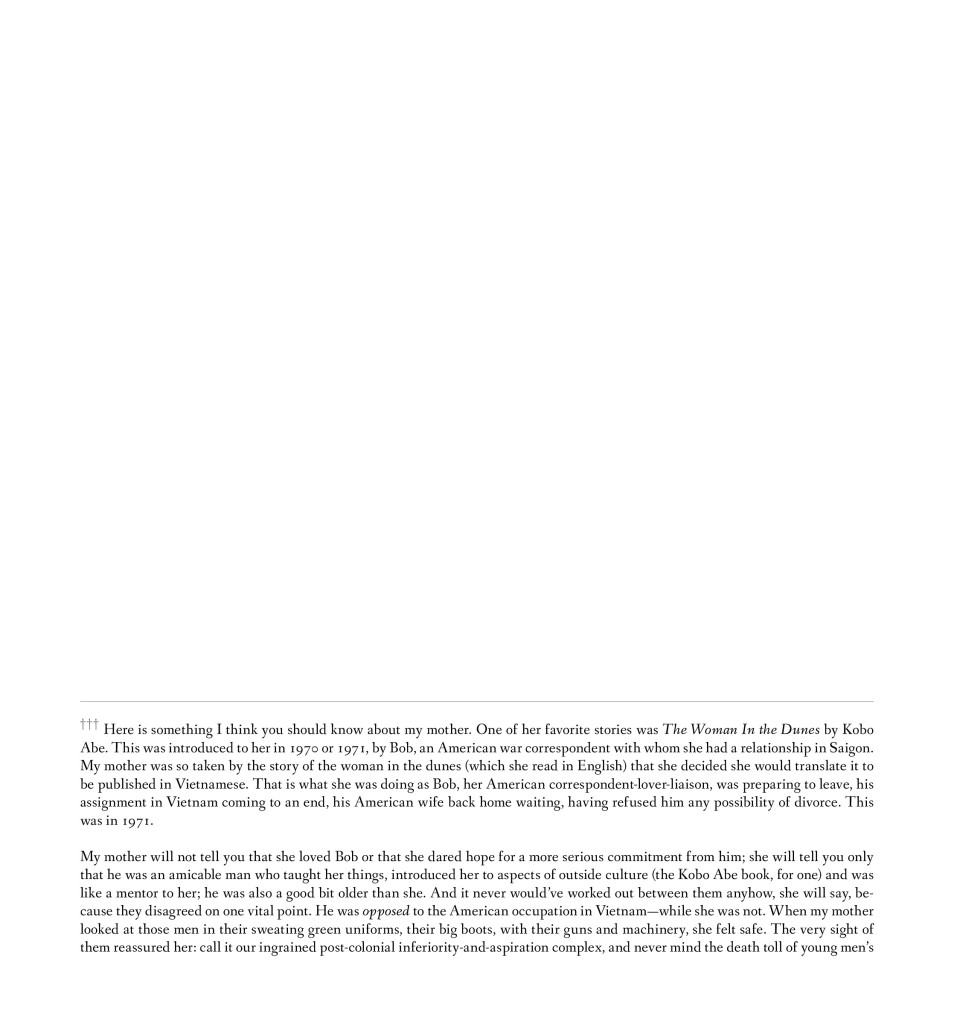
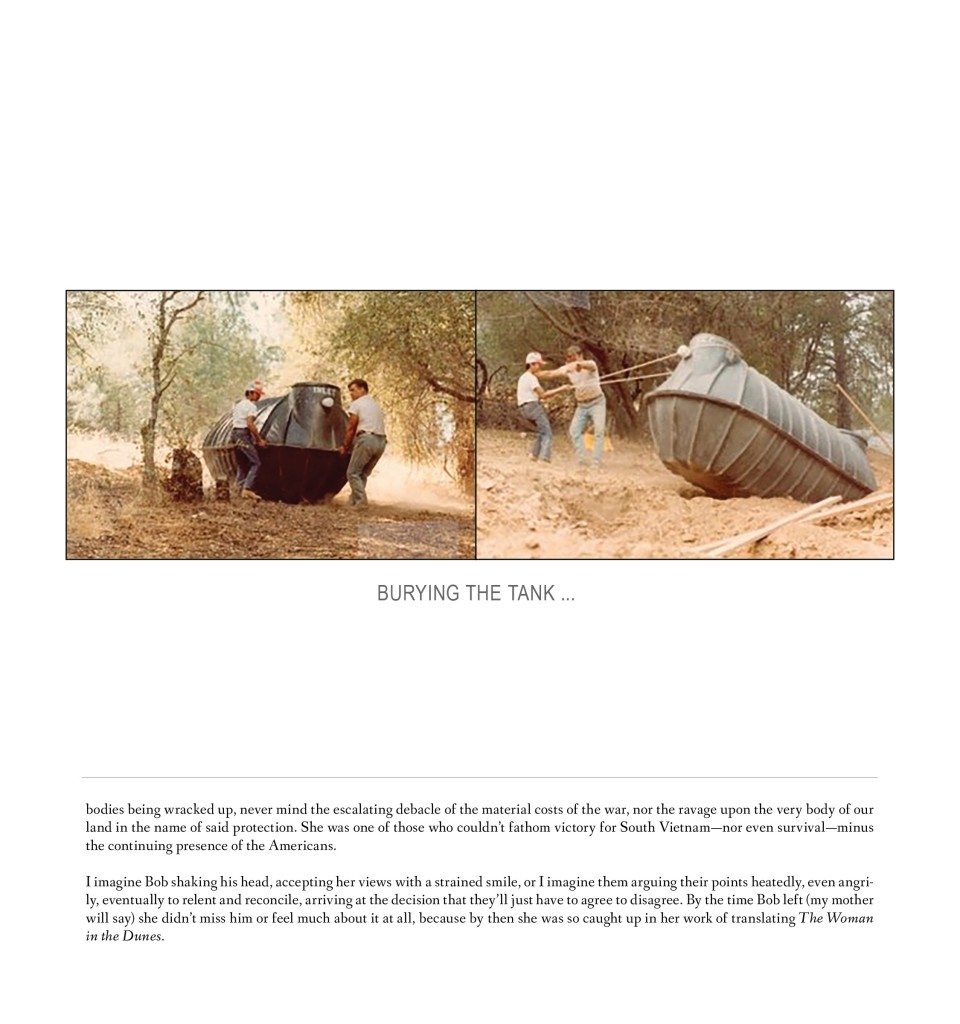
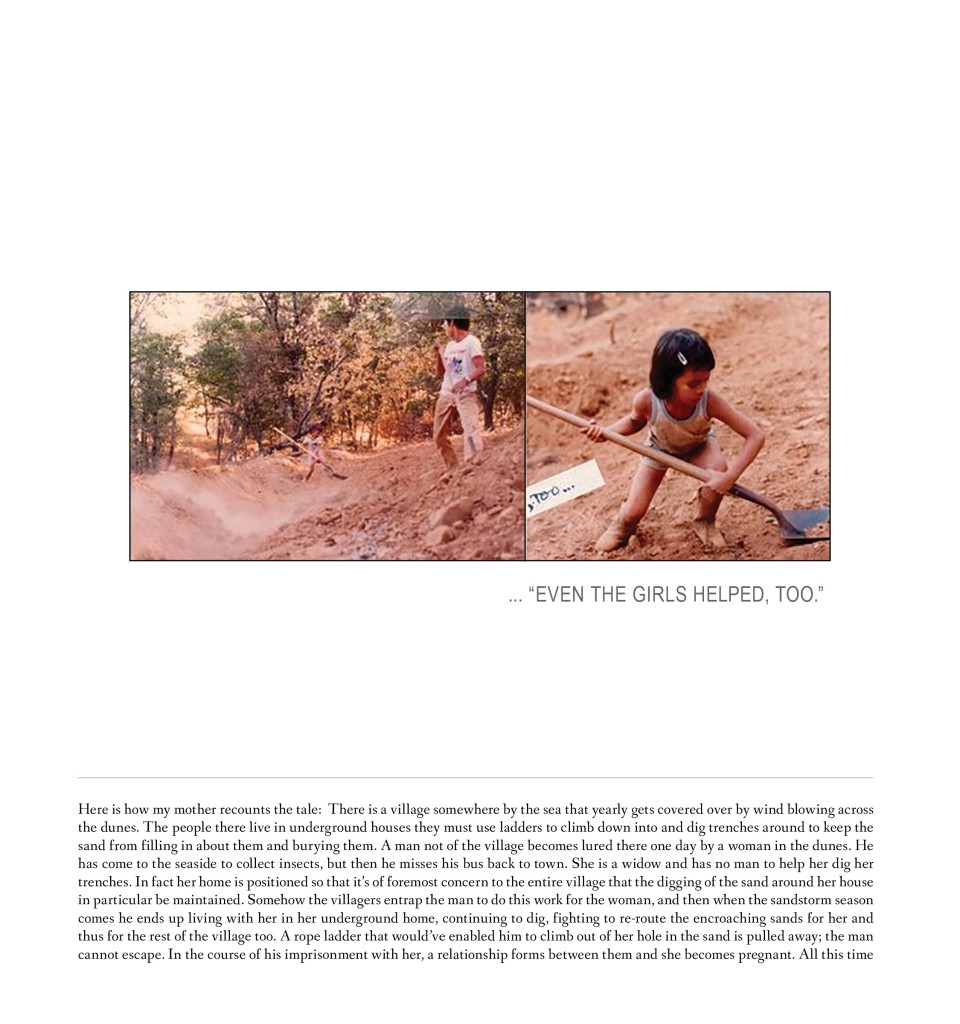
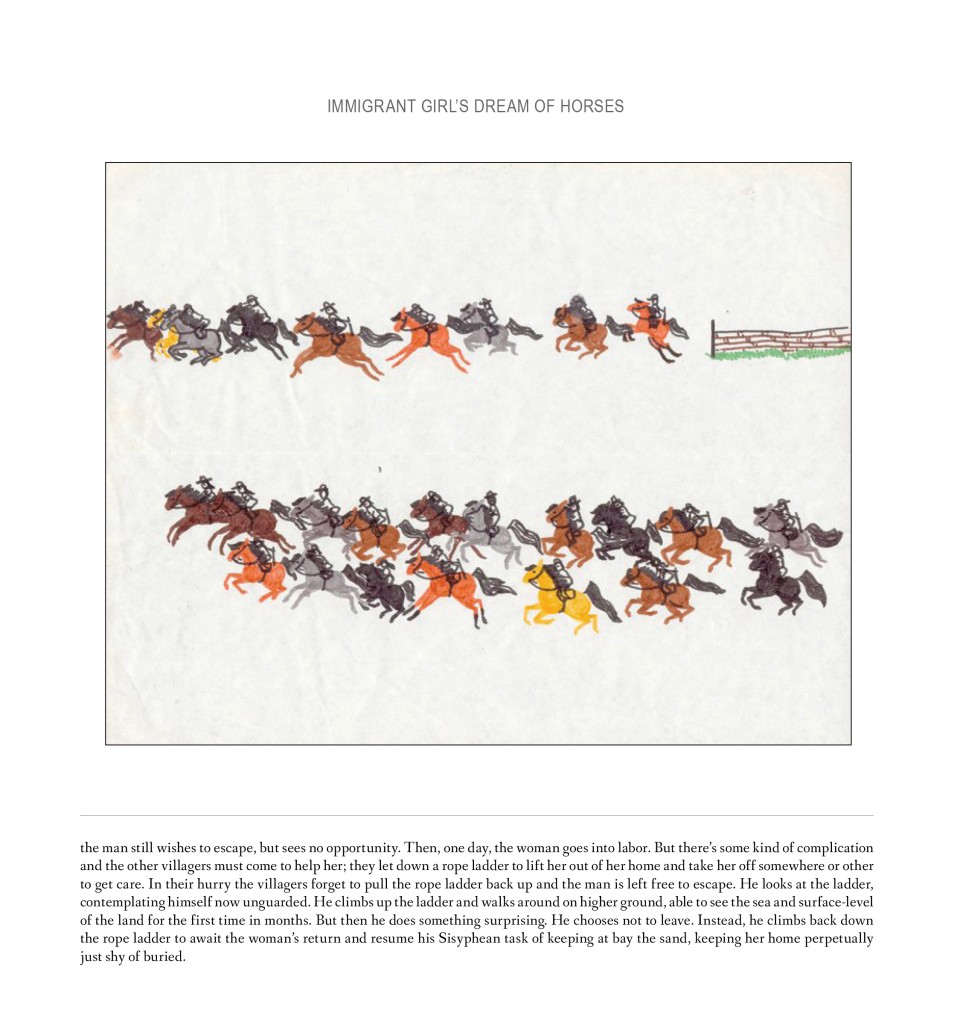
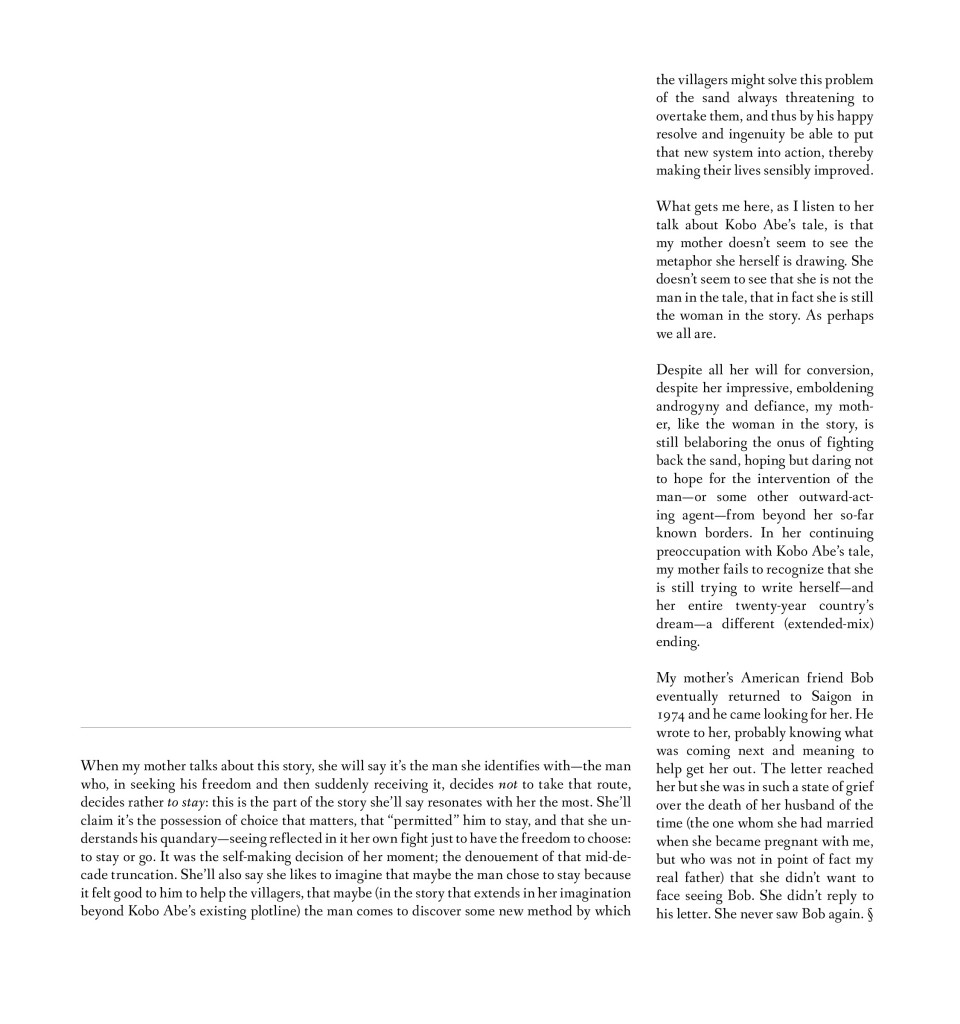
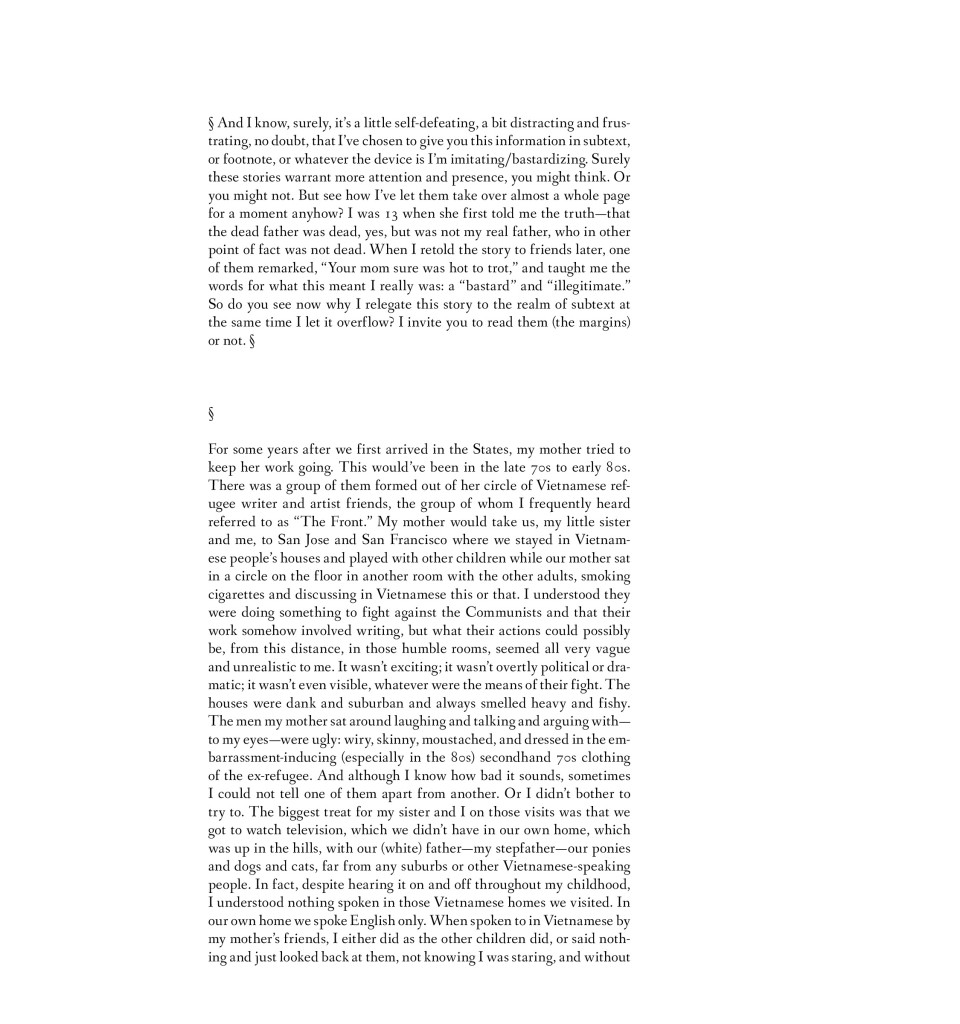
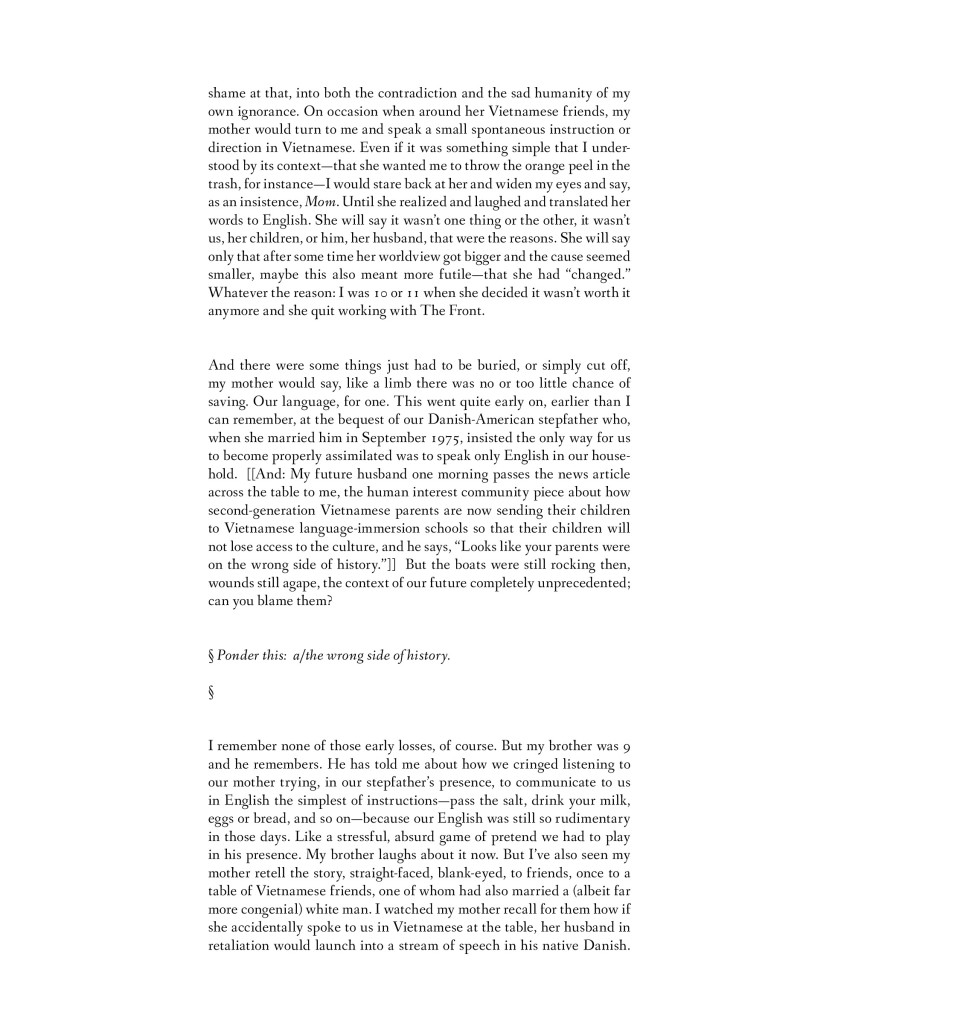
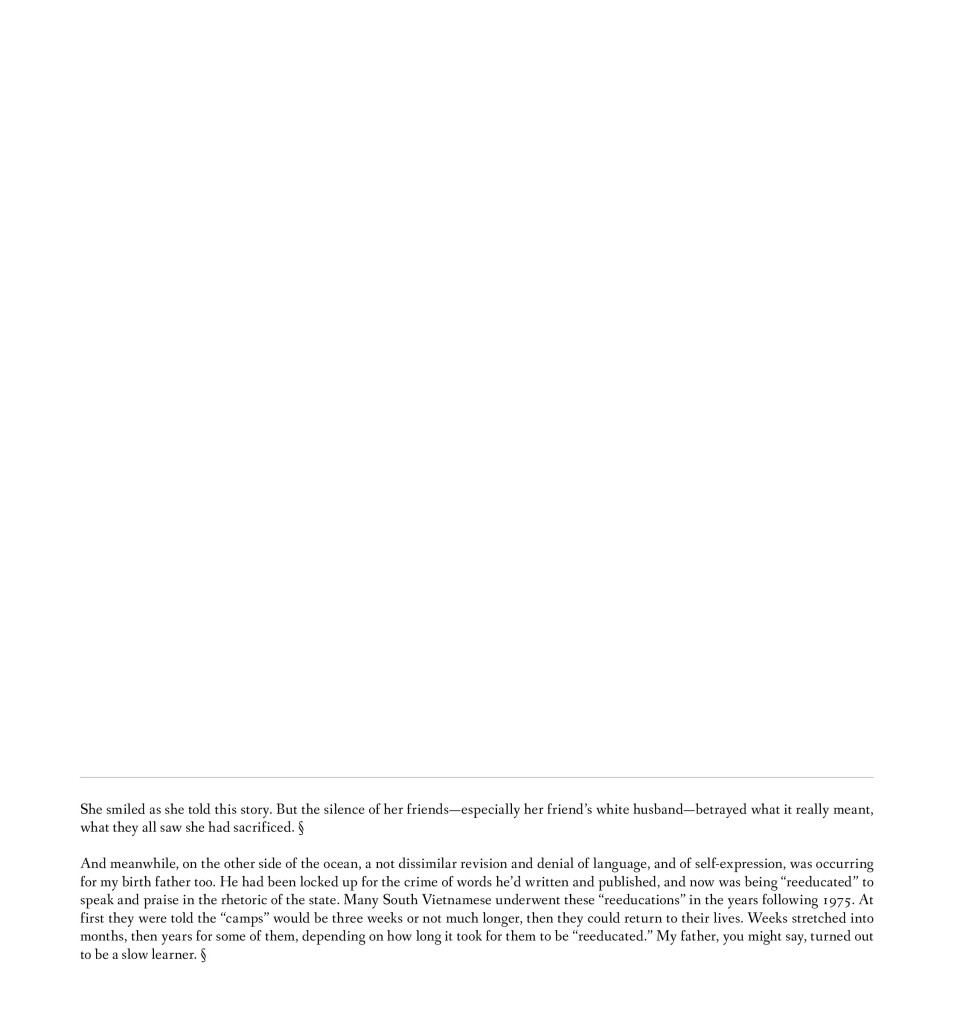

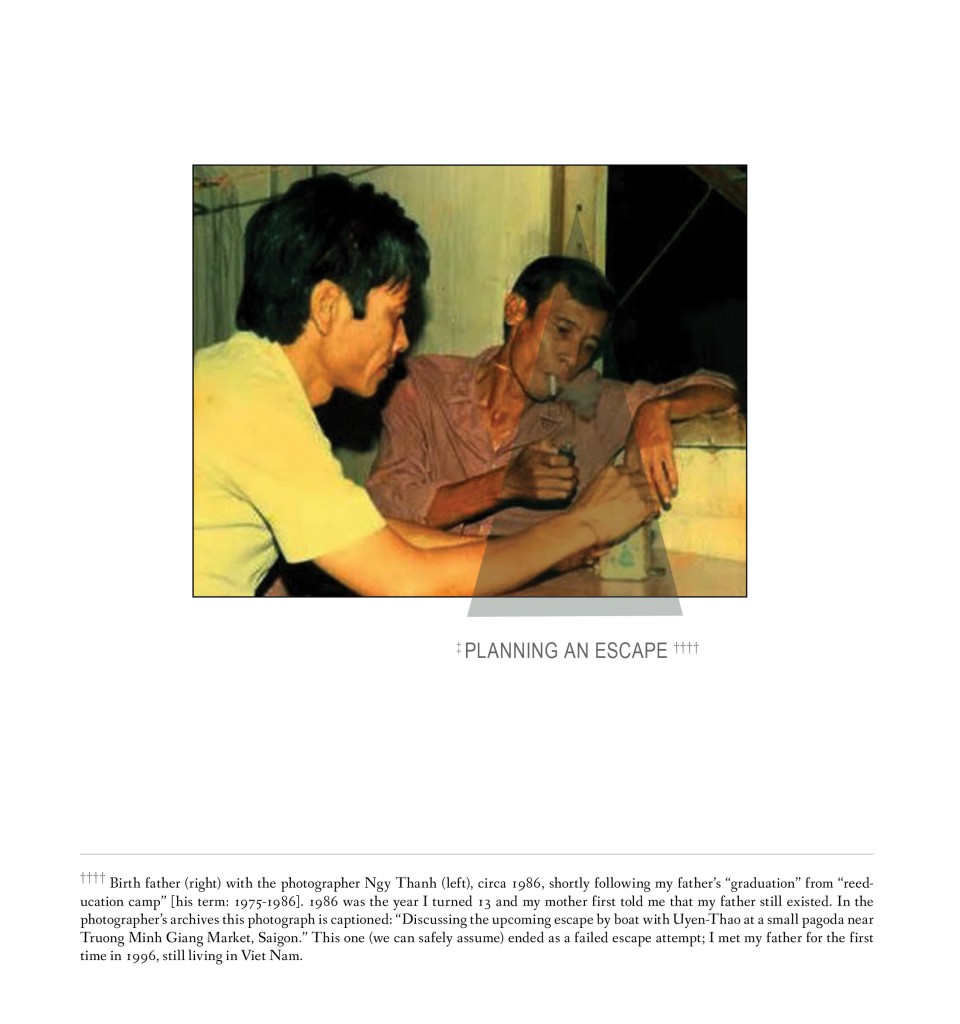

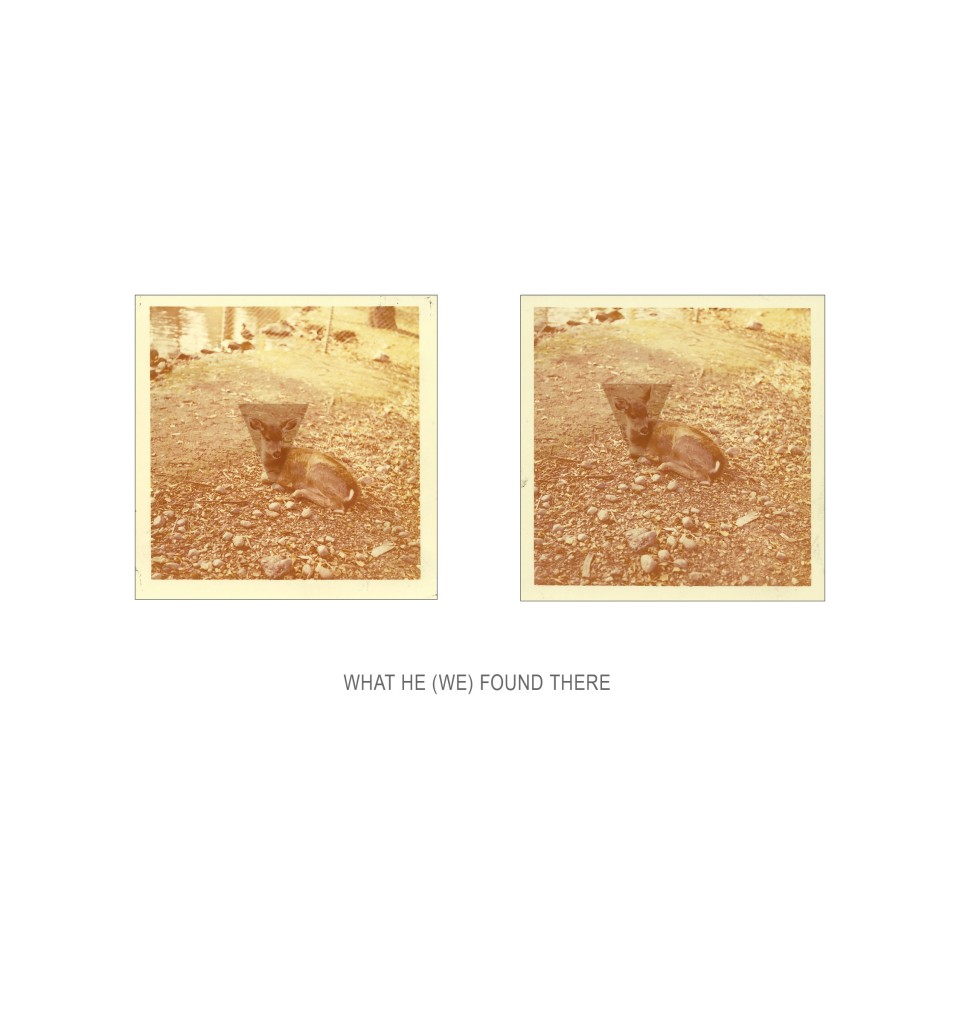
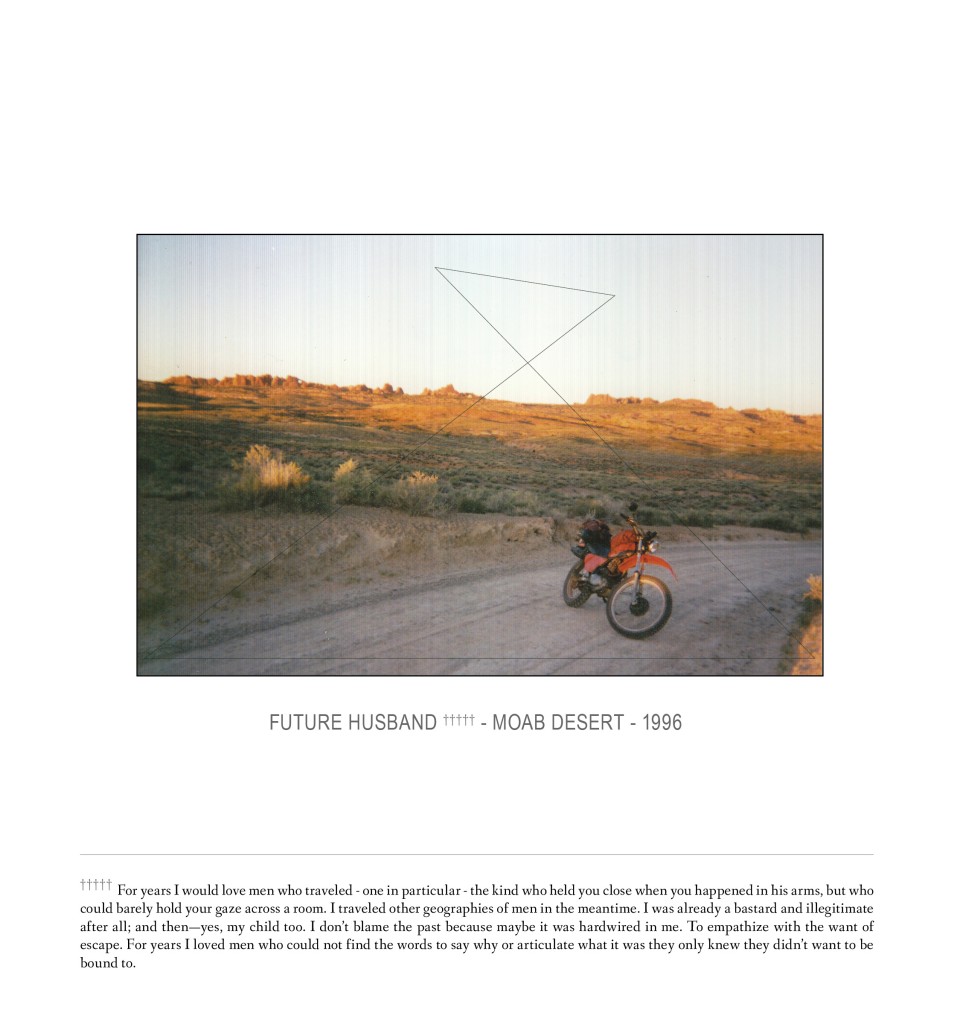


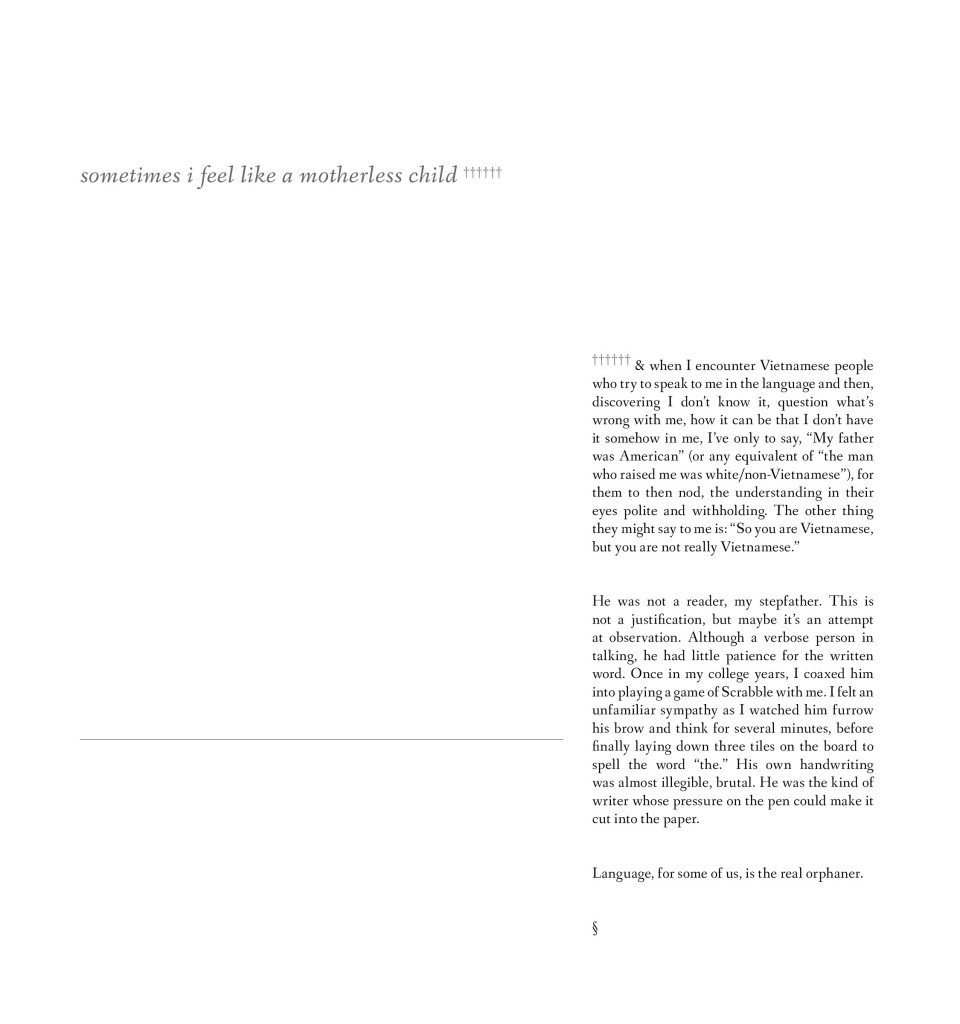
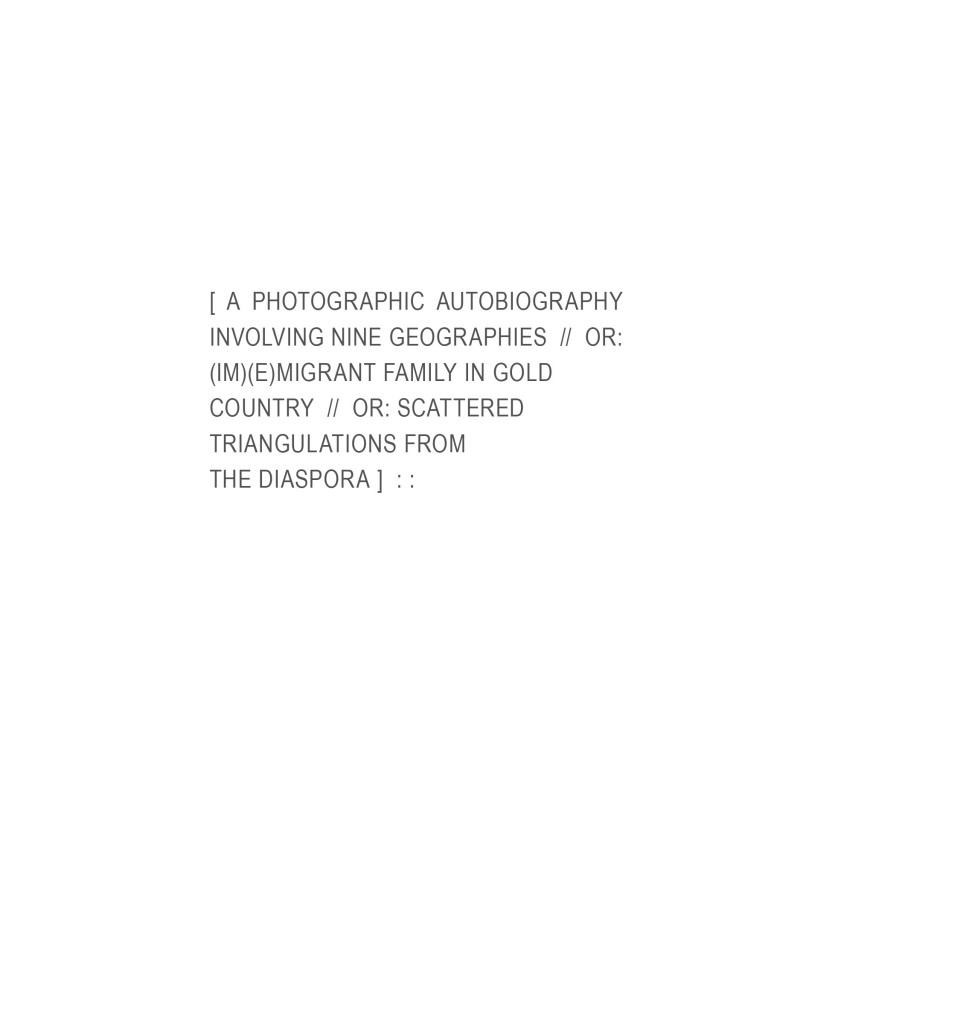
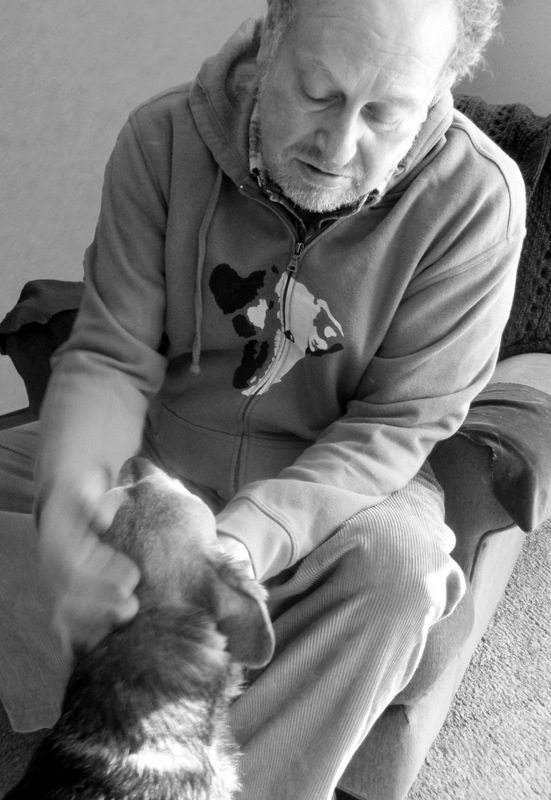




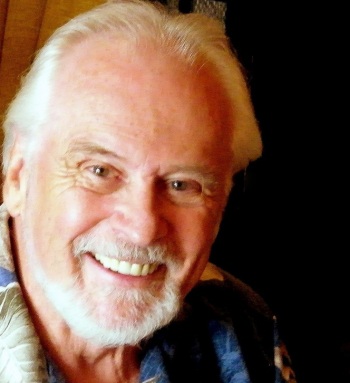
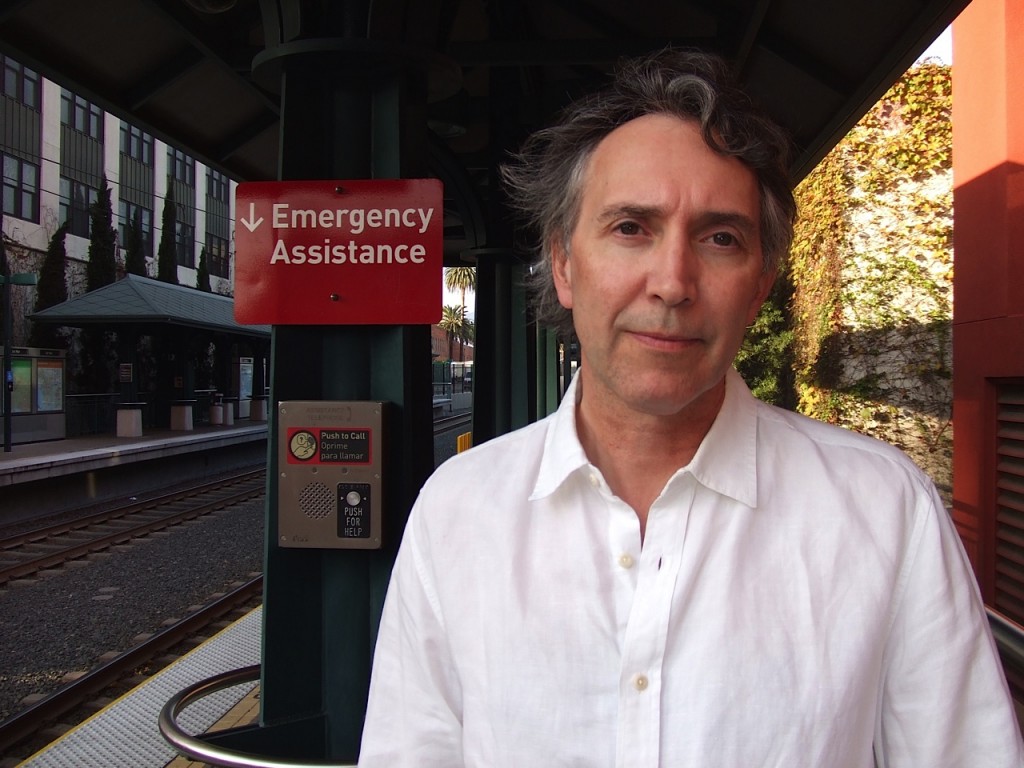 Bradd Allen Saunders. Photo by Dana Saunders.
Bradd Allen Saunders. Photo by Dana Saunders.
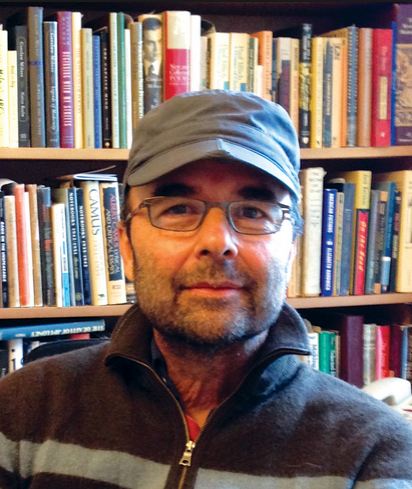
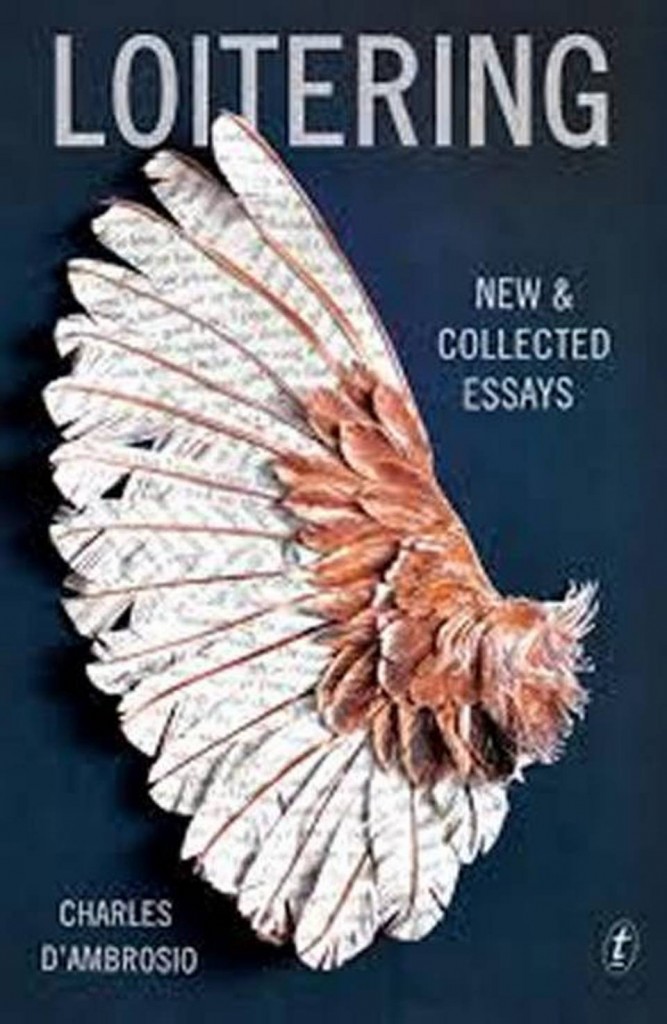


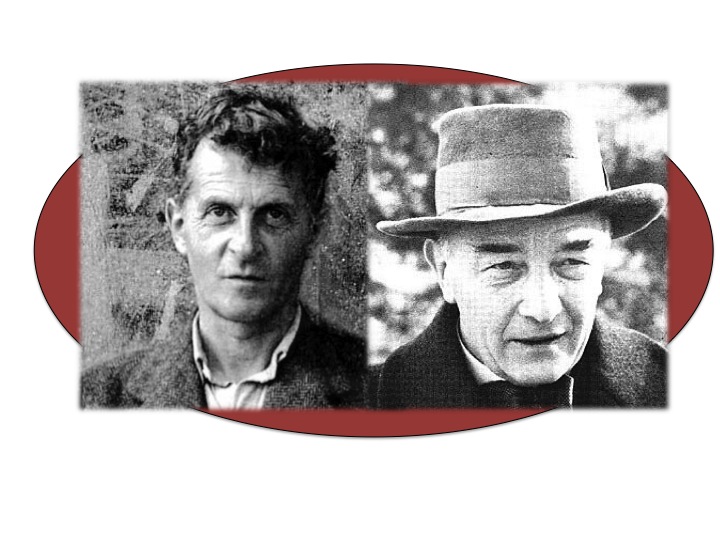
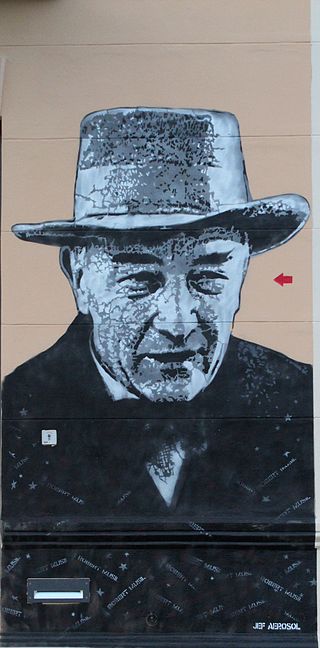
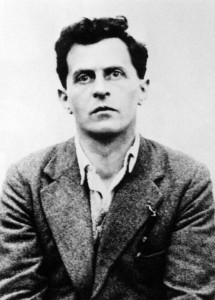 Ludwig Wittgenstein
Ludwig Wittgenstein